











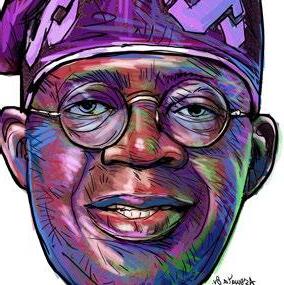


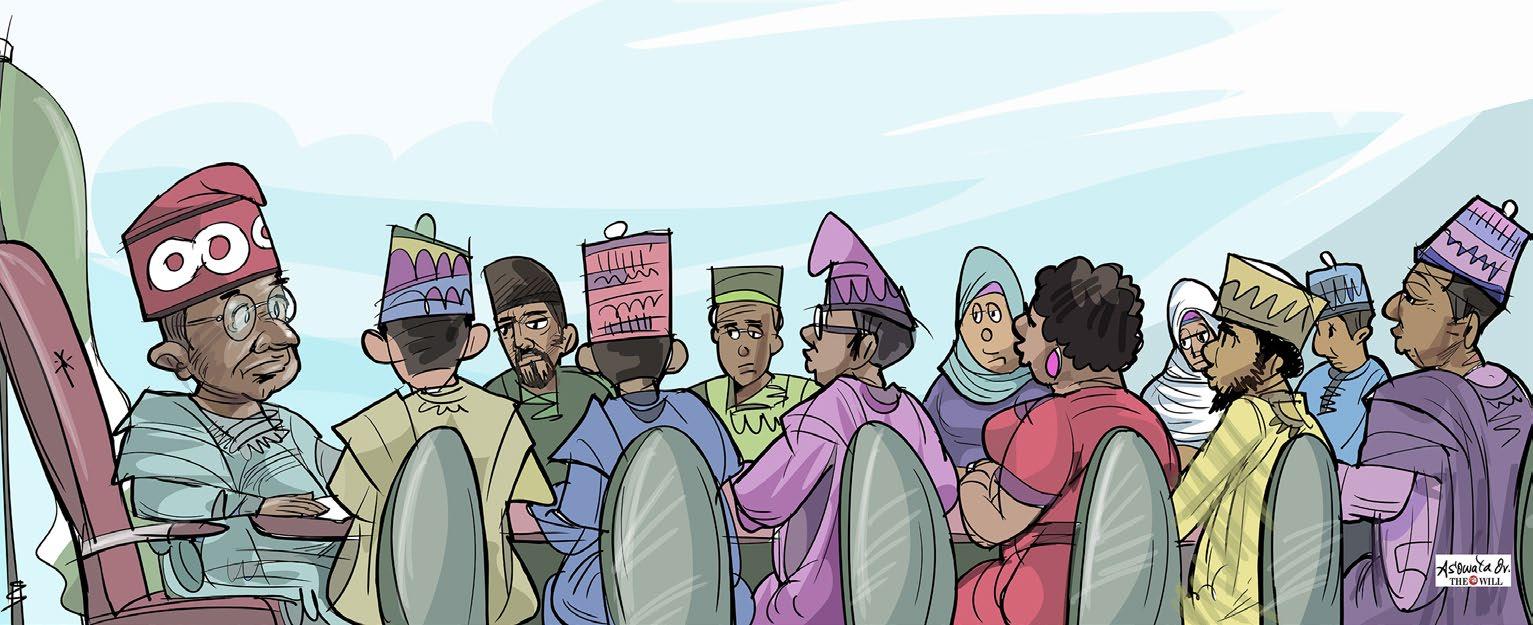




















OnahNwachukwu Editor, THEWILL DOWNTOWN







Filmmakers promote social change and raise awareness of important issues like domestic abuse, women’s rights, and other critical issues. Omoni Oboli is an actor, scriptwriter, producer, and director, and she is among those leaving a lasting impression. She has been in the industry for over a decade and is well-known for her ability to convey thought-provoking stories. This is evident in her film franchise, Wives on Strike. The franchise combines lighthearted elements with serious subjects. The third instalment of the franchise, The Uprising: Wives on Strike 3, hit cinemas on October 18, and from what has been reported as the total sales, it’s done even better than the first two movies, with a total sale so far of N28.2 million.
Read Omoni Oboli’s captivating story on pages 8 through 10.
We have a new columnist, Sally Chiwuzie, who will write in her column #Unshakable Truths. I urge you to read her piece; it’s quite compelling. You’ll find it on page 7.
While alcohol in skincare products might be associated with drying the skin, this week on our beauty page, we discuss a different kind: fatty alcohols. This ingredient works wonders on the skin, and we highlight six benefits of fatty alcohols on page 12.
If you are not a collector of handbags, it’s best to have the basic colours that match practically every outfit. We feature six of the must-have handbag colours every girl should have. That’s on pages 4 and 5.
As usual, the movie review page reviews two movies and has a playlist just for you. Click on the instructions below the QR codes to download the playlist; you’ll enjoy the music selection.
Until next week, enjoy your read.







SUNDAY, OCTOBER 27, 2024 THEWILL NEWSPAPER • www.thewillnews.com
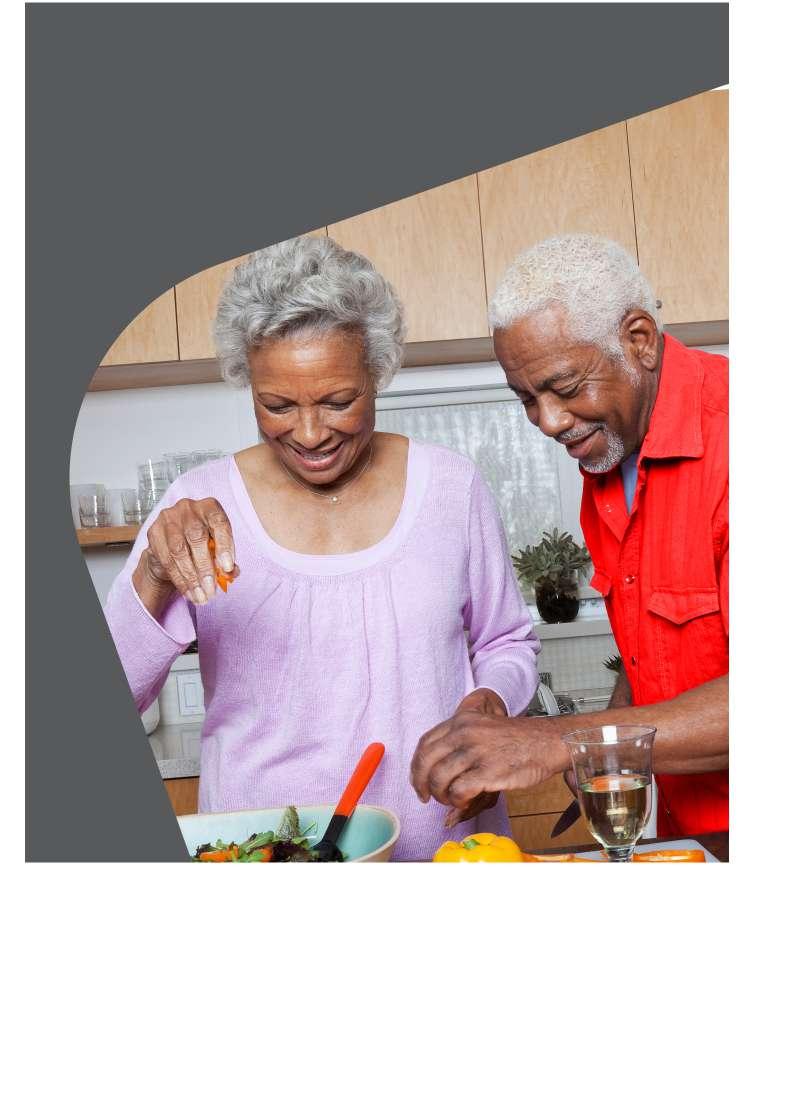
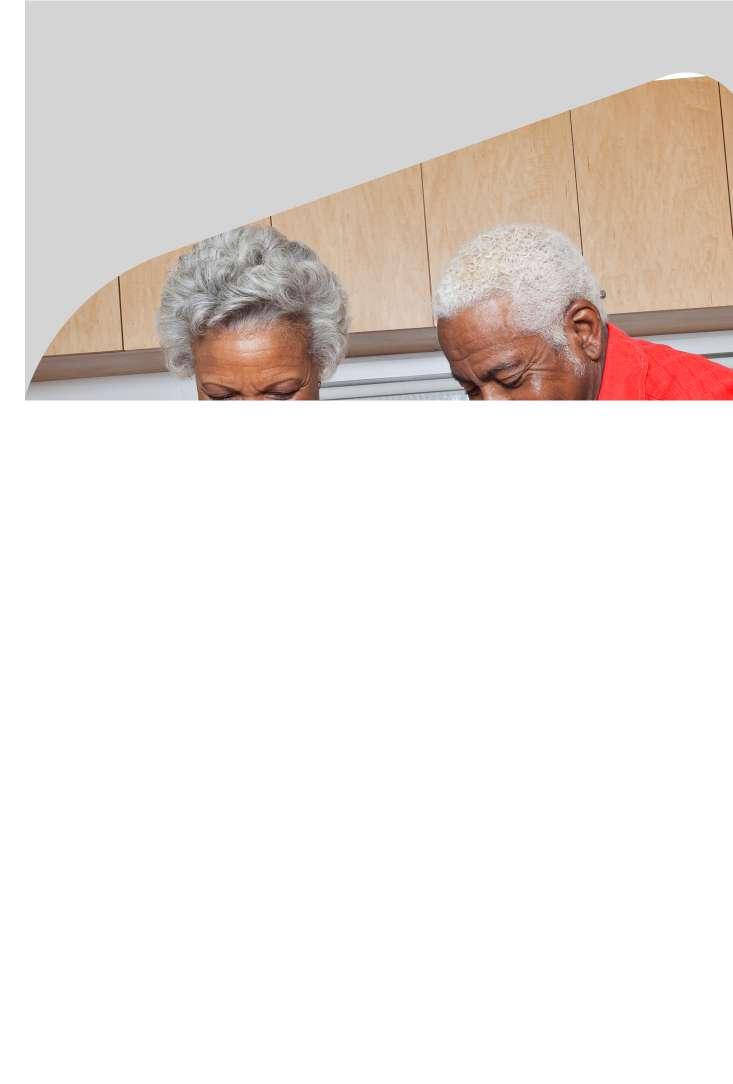



SUNDAY, OCTOBER 27, 2024
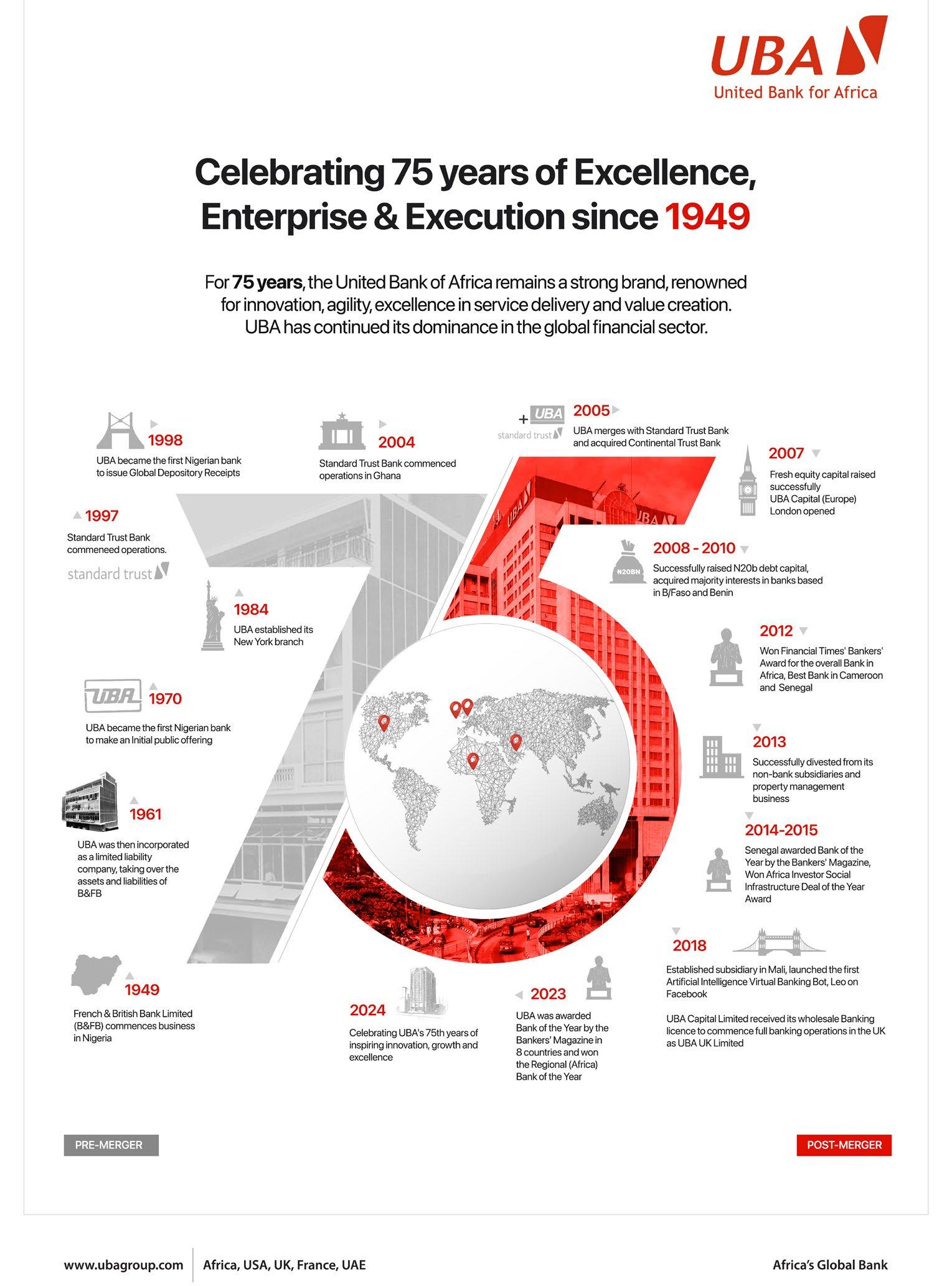


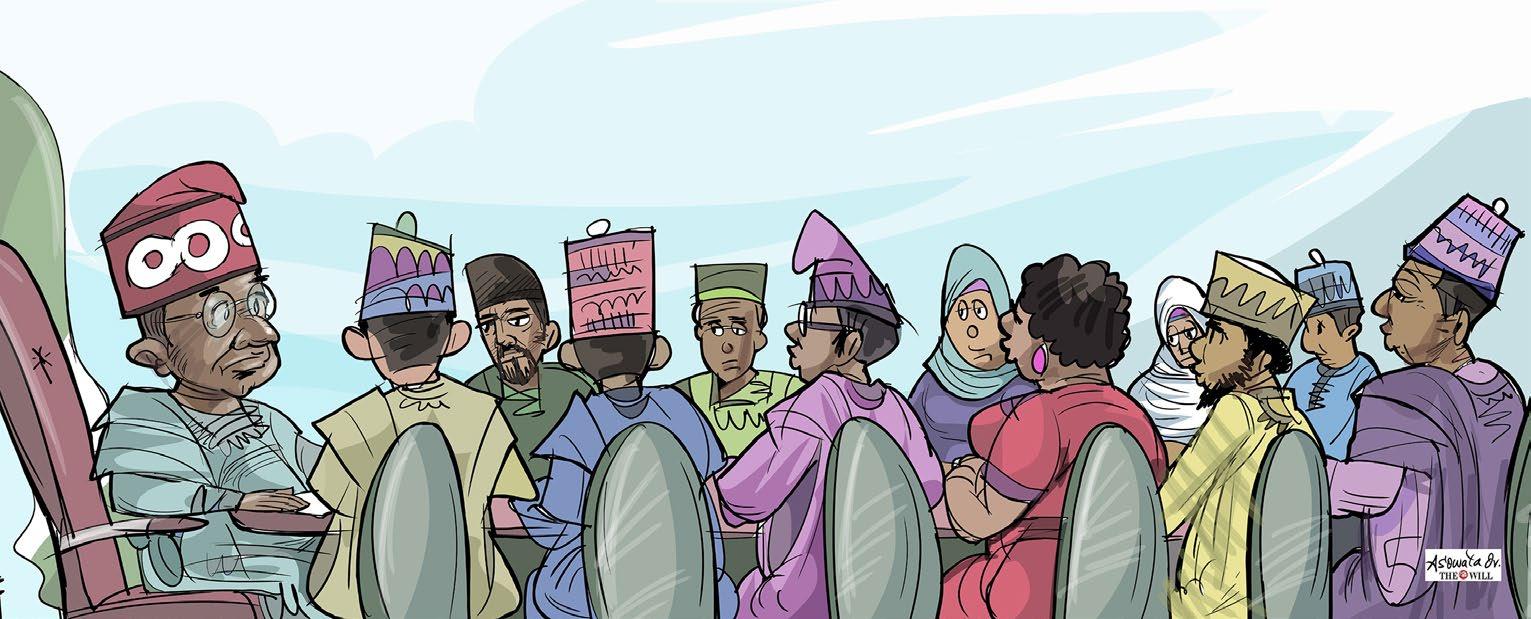
BY AMOS ESELE
After several weeks of suspense, President Bola Tinubu last Wednesday laid to rest speculations of an imminent cabinet reshuffle. He approved the immediate implementation of eight far-reaching actions that the presidency said were meant to “reinvigorate the administration’s capacity for optimal efficiency,” pursuant of his commitment to deliver on his promises to Nigerians.
The eight measures that came into immediate effect after the meeting of the National Executive Council, NEC, on that Wednesday, include the “discharge” of five ministers, nomination of seven new ones and the merger of some ministries.
INTRIGUES,
According to the presidency, the sacking, redeployment and nomination of the ministers were based on a performance assessment report mediated by Nigerians through the Citizens’ Delivery Tracker device that brought feedback on the performances of some government policies and projects of its ministries, departments and agencies.
The government’s Central Coordination Unit, headed by the Special Adviser to the President on Policy and Coordination, Ms. Hadiza Bala Usman, coordinated the project. Even so, there were some ministers whose retention had raised eyebrows as they were considered not up to par with expectations.
Three of them who dominated much of public discussion prominently after the presidential announcement were Minister of Power, Adebayo Adelabu, Minister of Marine and Blue Economy, Adegoyega Oyetola and Minister of State for Defence, Bello Matawalle.
The recent successive collapse of the national grid, leading to drastic reduction of the national wattage from 7,000 to 4,000, which plunged many parts of the country into darkness for hours threw the supervising minister up for savage public scrutiny.
Matawalle’s public quarrel with the Governor of Zamfara State, Dauda Lawal, over allegations of sponsoring banditry in the North-West state was bad for the federal government’s efforts in
fighting insecurity, while Oyetola is perceived to be struggling and yet to find his footing in the new Ministry.
Investigations by THEWILL, however showed that, contrary to the presidency’s position, a high degree of intrigue and power play was at work. At one point, subtle politics was at play, at another it was an open clash of interest and inaction, as well as a display of narrow vision on the part of some of the ministers.
According to a dependable presidential source, the Ministry of Youths had found itself in a situation where the Minister of State, Ayodele Olawande was not getting along with the substantive minister, Dr Jamila Bio Ibrahim. Olawande was stronger than Ibrahim politically and so, it was difficult for both to work together smoothly.
Although she came from a political family with a father who was Minister for Transport under late President Umaru Musa Yar’Adua and Minister for Sports under ex-President Goodluck Jonathan, Dr Jamila, who was a Special Assistant to Kwara State governor on Sustainable Development Goals before her appointment by President Tinubu in September 2023, was a mismatch for Olawande.
Apart from being a personal Assistant in Vice President Yemi Osinbajo’s office from 2019 to 2023, Olawande was also a former Southwest coordinator of Asiwaju Grassroots Foundation and Deputy Director and the Presidential Campaign Youth Council in the South-West.
“Politically, Olawande was considered stronger than her and then she did not quite align her ministry to the administration’s Renewed Hope Agenda and this made her lose focus,” the source said.
In the same vein, Dr Morufu Olatunji Alausa, former Minister of State, Health and Dr Mohammed Ali Pate, Coordinating Minister for Health and Social Welfare, did not get along at all, one source told THEWILL. In fact, the source described the relationship between both ministers as “choked.” In the end, Alausa, who is also the ‘President’s man’ had to be moved to the Ministry of Education to sustain the Lagos State ministerial slot. The other case of open display of conflict of interest was
presented by Dr Doris Uzoka-Anite, Minister of Industry, Trade and Investment, redeployed as Minister of State, Finance in the shake-up. She was said to have escaped the “presidential axe in the last minute of manoeuvres.” The source of her trouble, according to sources, was a prolonged, if not embarrassing, battle with the Nigerian Association of Chambers of Commerce, Industry, Mines and Agriculture, NACCIMA. The association was said to have complained to the President severally that the minister saw them as “a competitor rather than an enabler of the associations as far as bilateral and multilateral events were concerned.”
She was not promoting NACCIMA as a champion of the Nigerian industry. Fearing the inevitable, she was said to have reached out to her close associate Olawale Edun, the Minister of Finance and Coordinating Minister of the Economy, who intervened on her behalf. Former Minister of Education, Prof Tahir Mamman, a Senior Advocate of Nigeria, presents a case of open bias that trailed his tenure. Besides controversial policies like the university admission policy and the accreditation of universities in neighbouring Benin Republic and Togo, which caused a diplomatic row between those countries and Nigeria, that dogged his tenure, the last straw for the minister was an interagency conflict triggered by his constitution of the Tertiary Institutions Management Board. For a board that is supposed to have at least 10 members from each state, the minister was said to have allocated 37 slots to his home state of Adamawa. “This action showed a lack of transparency on his part. A new committee had to be set up to review the appointments and the slots were shared among governors at 15 per state”, said the presidential source. The source added that President Tinubu did not find anything wrong with retaining Oyetola and Adelabu as they had keyed into the Renewed Hope Agenda of his administration.
“The problem with the Marine and Blue Economy is that it is still relatively new. It will take time for them to develop a working strategy before they begin to make the desired impact. In Adelabu’s case, people may not know it, but electricity supply has improved. In my house in Abuja, I get 22 hours of regular power unlike before. The man has identified the challenges of that sector, which are structural, and improved the transmission lines. Both ministers have keyed into the Renewed Hope Agenda.

Ms. Bala-Usman. So, the sacking, redeployment and nomination of fresh Ministers last Wednesday, was not done whimsically, Onanuga said. According to him, the government even asked Nigerians to score the ministers. This was done. The ministers were removed from office based on public perception and those empirical facts. It was the people who actually did the score cards based on performance. Sometimes at cabinet meetings, the President often reminded the ministers to go to the people and explain what the government was doing.
Explaining further, Onanuga said that after the National Executive Council, NEC, meeting last Wednesday, President Tinubu called the ministers for a meeting, thanked them for the services they had rendered and explained why they had to go. He did it in a polite way. The only hint that the President dropped during the NEC meeting was when at the end of the meeting, he named five ministers and asked them to see him. The administration’s Renew Hope Agenda is not a mere slogan, but in fact a manifesto encompassing all the policy direction and reforms implementation. That is the template the ministers
Onanuga argued that the new appointments were done with the aim to engage the best hands for the job. Bianca Ojukwu’s diplomatic experience is said to have weighed in her favour, for which reason she was nominated as Minister of State for Foreign Affairs. Minister of State for Health, according to Onanuga, is a former US based medical doctor, “who is versatile and had done well in the Health and Social Welfare Ministry, but the president wants to challenge him to do more, hence his redeployment as
He further disclosed that the President plans to expand the scope of the ministry to enable the government to fulfil its pledge to offer palliatives to the vulnerable in the society through a properly coordinated method, using identification verification like the NIN for tracking purposes.
“At a time Nigeria is having challenges in the form of food insecurity and food inflation, the President thought it wise to create a Ministry of Livestock Development, separate from agriculture, as a way to frontally address these challenges,” he said, further explaining why there was an additional ministerial

Reduction, Dr Nentawe Yilwatda, was APC’s governorship candidate during the 2023 general poll in Plateau State. He fills the vacancy for Plateau State created by the exit of Senator Simon Lalong who resigned as Minister of Labour and Employment for the Senate after the Court of Appeal confirmed him duly elected to represent Plateau South Senatorial District in 2023.
Until his appointment into the Ministry of Livestock Development, Idi Mukhtar Maiha was a dairy farmer. He was Managing Director and CEO of Zaidi Farms Ltd in Kaduna, a farm that boasts of over 250 cattle, including Friesian, Simmental, and Jersey breeds, and features modern facilities such as pen houses, a milk parlour, tractors and hay barns. Apart from having a stint in Borno State Government as Commissioner for Agriculture and Natural Resources, he is a fresh hand at the national stage and is expected to bring his expertise to the new ministry, designed, among other things, to significantly address the often violent, bloody herder/farmer conflict.
Minister of Housing and Urban Development, Yusuf Abdullahi Ata is a former Speaker of the Kano State House of Assembly, while the Minister of State, Education, Dr Ahmad has been an Associate Professor of Education at Bayero University, Kano (BUK), since 2004. She is from Jigawa State and has served as the Director of the university’s Centre for Gender Studies, promoting research and initiatives focused on gender equality.
PRESIDENCY’S VERSION OF EVENTS
The Special Adviser of the President on Information and Strategy, Bayo Onanuga, through messages on his X account and interview on national television, explained how the reshuffle unfolded. He said the process began in August 2023 when the ministers were sworn-in and the President informed them that since he had the power to hire and fire and would not retain ministers who could not perform.
At a follow-up retreat in October, the President repeated the warning about his plans to always rejig his cabinet. He also told them there would be an appraisal of their performance, coordinated by Special Adviser to the President on Policy and Coordination and Head, Central Delivery Coordination Unit,
Minister of State for Defence, Bello Matawalle is one of those that escaped the hammer. He recently had a running media battle with the Governor of Zamfara State, who is also his successor in office, Dauda Lawal, over allegations of sponsoring bandits. Onanuga said the allegations were investigated by the Office of the National Security Adviser, NSA, Nuhu Ribadu and found to be false.
He said, “As far as I know, most of those things were just mere allegations. People are just bringing out all kinds of fake things and allegations. The President, I am sure, has heard many stories about him. For him to be there shows that, like I have said, some of those things have been probed. They have been found not to be true. “I even got one of such messages which I sent to the NSA and he replied he had probed and found them to be untrue.”
“At a time Nigeria is having challenges in the form of food insecurity and food inflation, the President thought it wise to create a Ministry of Livestock Development, separate from agriculture, as a way to frontally address these challenges,” he said, further explaining why there was an additional ministerial portfolio
Explaining the eight point measures it took to reposition the economy, the presidency said they included the renaming of the Ministry of Niger Delta Development to the Ministry of Regional Development, which will oversee the activities of all the Regional Development Commissions. The Regional Development Commissions to be under the supervision of the new ministry are the Niger Delta Development Commission, the SouthEast Development Commission, the North-East Development and the North -West Development Commission. The second measure was the immediate winding up of the Ministry of Sports Development and the transfer of its functions to the National Sports Commission.
Others were the merger of the Federal Ministry of Tourism and the Federal Ministry of Arts and Culture to become Federal Ministry of Art, Culture, Tourism and the Creative Economy; The re-assignment of ten (10) ministers to new ministerial portfolios; The sacking of five (5) Ministers; The nomination of seven (7) new ministers for onward transmission to Senate for confirmation; The appointment of Shehu Dikko as Chairman of the National Sports Commission and the appointment of Sunday Akin Dare as Special Adviser to the President on Public Communication and Orientation working from the Ministry of Information and National Orientation
The list of former ministers, who were redeployed, and their assigned portfolios are Dr Yusuf Tanko Sununu, who was Minister of State, Education now redeployed to Ministry of Humanitarian Affairs and Poverty Reduction as Minister of State; Dr Morufu Olatunji Alausa, formerly Minister of State, Health, now Minister of Education; Barr. Bello Muhammad Goronyo, formerly Minister of State, Water Resources and Sanitation, now Minister of State, Works and Hon. Abubakar Eshiokpekha Momoh, previously Minister of Niger Delta Development, now Minister of Regional Development.
Others are Uba Maigari Ahmadu, ex-Minister of State Steel Development, now Minister of State Regional Development; Dr Doris Uzoka-Anite, Minister of Industry, Trade and Investment, now Minister of State Finance; Sen. John Owan Enoh, Minister of Sports Development, now Minister of State, Trade and Investment, (Industry); Imaan Sulaiman-Ibrahim Minister of State, Police Affairs, now Minister of Women Affairs; Ayodele Olawande, Minister of State for Youth Development, now Minister for Youth Development and Dr. Salako Iziaq Adekunle Adeboye, Minister of State, Environment, now Minister of State, Health. The five ministers that were sacked are Barr. Uju-Ken Ohanenye, Minister of Women Affairs; Lola Ade-John, Minister of Tourism; Prof Tahir Mamman, SAN, Minister of Education; Abdullahi Muhammad Gwarzo, Minister of State, Housing and Urban Development and Dr. Jamila Bio Ibrahim, Minister of Youth Development. The seven new Minister-nominees are Dr Nentawe Yilwatda, Minister of Humanitarian Affairs and Poverty Reduction; Muhammadu Maigari Dingyadi, Minister of Labour and Employment; Bianca Odinaka Odumegwu-Ojukwu, Minister of State, Foreign Affairs, Dr Jumoke Oduwole; Minister of Industry, Trade and Investment; Idi Mukhtar Maiha, Ministry of Livestock Development; Rt. Hon. Yusuf Abdullahi Ata, Minister of State, Housing and Urban Development and Suwaiba Said Ahmad, Ph.D; Minister of State Education, Federal Ministry of Education.
As expected, opinion is divided on the essence of the cabinet reshuffle. While the Nigeria Labour Congress, NLC, commends the President’s “bold move,” and demands “more action to address the country’s economic and social challenges,” the Federation of Tourism Associations of Nigeria (FTAN, described the news of the merger of the Ministry of Tourism and the Ministry of Arts, Culture and Creative Economy as a “rude shock,” but called on the government to see the convergence of these sectors under one ministry as a unique opportunity for a more integrated approach to development.
For Professor of Political Economy at Lagos State University, Sylvester Odion-Akhaine, no significant change is expected with the cabinet reshuffle. “It is motion without movement,” he told THEWILL on Friday, “Nothing in the cabinet that bodes well for the national economy.”
However, the National Coordinator of Shareholders Association of Nigeria, Moses Igrude, expressed the hope that the change will bring some vibrancy into governance. “We hope the new ministers will be able to drive the vision of the President because the government needs to continue to pursue policies that will enhance the business environment so that the private sector can thrive. Exchange rate fluctuation is affecting servicing of loans and affecting engagement in steady production. We also hope that ease of export will be enhanced too with this new change. The renewed fight over insecurity should be sustained so that capital can feel safe to move into the country,” he told THEWILL on Friday.
L-R:

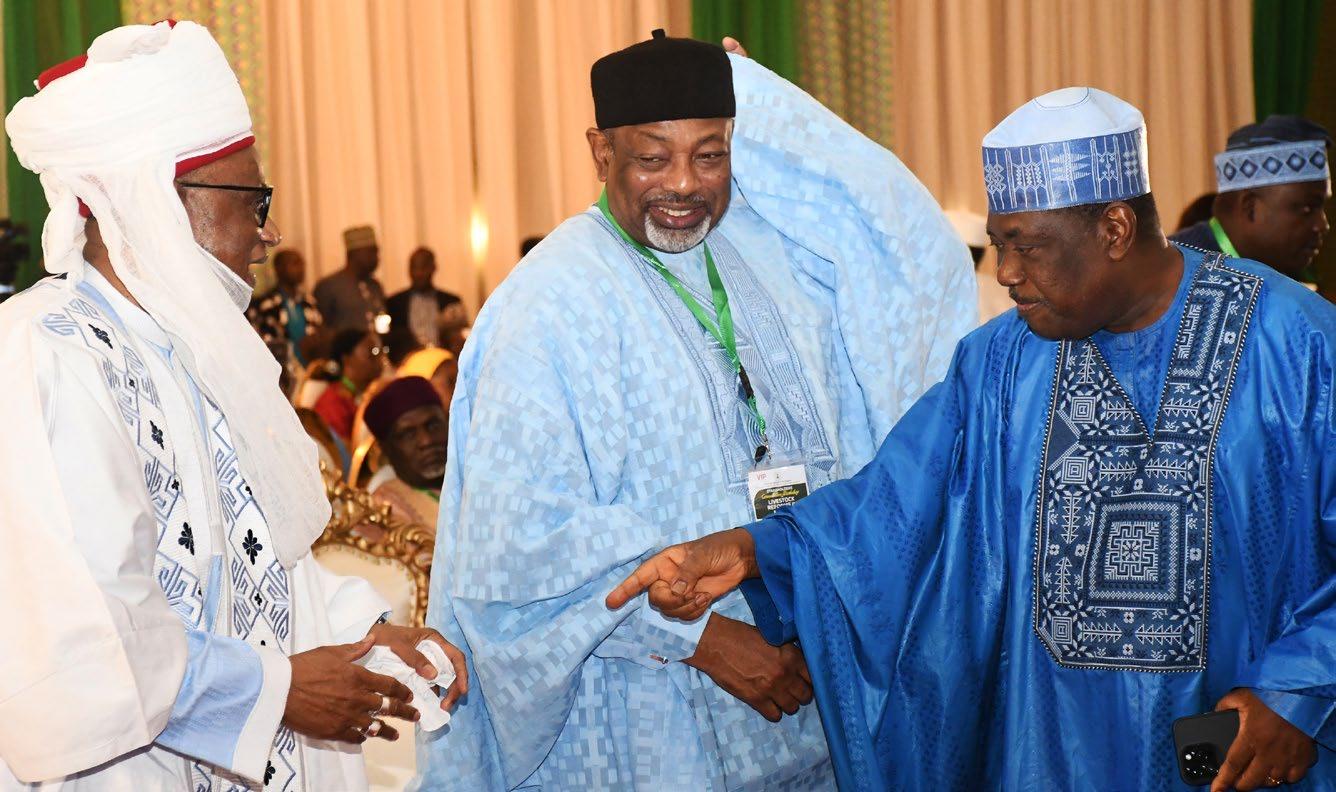
BY ABDULLAHI YUSUF
Despite the non-participation of police and other federal security personnel in the conduct of Saturday's local government elections in Kano State, thousands of voters across the state trooped to polling centres to cast their votes.
THEWILL reports that the voters peacefully exercised their franchise with no police or any other federal security personnel around.
It was observed that only personnel of the State Road Traffic Agency (KAROTA) and members of vigilante groups gave cover to the elections.
The Kano State Police Command had on the eve of the election, said that it would comply with the court order restricting it from participation in the polls.
The command’s Public Relations Officer, Superintendent of Police, Abdullahi Haruna, said: “You are very much aware of the court order which was received by the Police Command here in Kano.
"Item nine of the order provides that the Police should not participate in the forthcoming local government elections in the state.
“So, the Police in Kano are not participating in the election. However, it’s our responsibility to ensure that there is no breakdown of law and order in the state and we’re always alive to our responsibilities”, Haruna said.
Governor Abba Yusuf had commended the peaceful conduct of the polls, describing it as the ‘freest’ in the history of the state.
BY JUDE OBAFEMI
The Confederation of African Football has announced that the Libya Football Federation violated key regulations concerning their scheduled Africa Cup of Nations qualifier match against Nigeria. The LFF was found to have breached Article 31 of AFCON Regulations, as well as Articles 82 and 151 of the CAF Disciplinary Code. These violations relate to the organisational and ethical standards set for international football competitions under CAF's jurisdiction.
As a result of these breaches, the AFCON qualifier match No. 87, between Libya and Nigeria, which was set to take place on 15 October 2024 in Benghazi, has been forfeited by Libya. CAF has declared the match lost by Libya, awarding Nigeria a 3-0 victory.
In addition to the forfeit, CAF has imposed a financial penalty on the Libya Football Federation. The Federation has been ordered to pay a fine of $50,000. The fine is to be settled within 60 days of the official notification of CAF’s decision.
CAF has dismissed all other requests and motions for further actions beyond these penalties, signalling that the matter has been fully resolved through these sanctions. The swift action taken by CAF ensures that the competition will proceed fairly, with all teams adhering to the established regulations for the 2025 AFCON qualifiers. This decision marks a significant development in the lead-up to AFCON 2025 and sends a clear message to all participating federations about the consequences of regulatory breaches. With the country at the bottom of the qualifying group, the implications for Libya's campaign are substantial.
BY FELIX IFIJEH
First Bank of Nigeria has dismissed misleading reports that it is presently carrying out any system upgrade.
The bank in a statement signed by its Group Head, Marketing & Corporate Communications, Folake Ani-Mumuney, said the misleading report was wrongly interpreted.
The statement read: “We wish to address a misleading report circulating in the media regarding a system upgrade at FirstBank.
“The message which was incorrectly interpreted and reported was sent to, and intended for our vendors only and focused on transitioning from our current I-Supplier Platform (our automated platform that connects us to suppliers) to a new Cloud-based Supplier Platform (world-class platform for managing suppliers), to enable additional capabilities and benefits for our vendors.
“Please be informed that no system upgrade is currently underway, and all our customer applications are fully operational. We are not experiencing disruption to our services, and our banking systems, customer transactions, channels, etc, will not be affected by the enhanced supplier platform.
“Rest assured that our commitment to seamless service delivery remains unwavering as you continue to enjoy uninterrupted access to our services.”
ive years after its official launch in 2019, the National Livestock Transformation Plan is about to get off the drawing board. The Federal Government conceived the plan, envisaged to end the long-drawn farmer-herder conflict that had impacted farming and ultimately food security. Many states that felt it was another attempt to reintroduce the controversial land grabbing plan, named RUGA, a Fulani
Smarting from the national clamour against RUGA, the Federal Government failed to summon the political will to see the plan through. Social political organisations like Afenifere and the Middle Belt Forum and state governments like Benue supported the proposed ban on open grazing bill in the National Assembly, while groups like Miyetti Allah Cattle Breeders Association of Nigeria vehemently opposed
Meanwhile, violence fuelled by environmental degradation and competition over land increased long-running tensions in the country’s northern and central geo-political zones, prompting the Federal Government to introduce a far-
The National Livestock Transformation Plan appeared to be the middle ground for the contending parties. Still, the government failed to deploy the necessary political will to
The new plan was designed to be the country’s comprehensive strategy to encourage pastoralists to switch to ranching and other sedentary livestock production systems and resolve the herder-farmer conflict, which threatened Nigeria’s political

President Muhammadu Buhari’s administration came up with the plan, following a wave of violence between herders and farmers – and particularly a surge in related violence afflicting rural dwellers in 2018. Under it, the Federal Government committed to fund 80 per cent of the transformation proposals and participating states, the remaining 20 per cent.
Both parties took preliminary steps like help with field surveys and site mapping towards putting the Plan into practice. Several states have reactivated earlier-demarcated grazing reserves, opened offices and set up steering committees to administer the Plan. The governments also held workshops to explain the benefits of livestock reform to a larger audience.
Speaking at the launch of the plan in Yola, Adamawa State in 2019, former Vice President Yemi Osinbajo said, “The National Economic Council that is composed of the governors of the 36 States met at the height of the farmerherder crisis in Nigeria to look for possible ways of resolving the problem and ensuring economic growth at the same time. The governors set up a Committee comprising the governors of the following states: Adamawa, Benue, Kaduna, Nasarawa, Ebonyi, Delta, Oyo, Taraba , Zamfara and Plateau to develop a plan.”
“That plan is what we christened the National Livestock Transformation Plan. After the plan was designed by that committee of governors it went back to the governors at NEC and was endorsed by all the 36 state governors.”
According to Osinbajo, it was agreed that some states would be selected as pilot states for the plan. They were seven, namely Adamawa, Benue, Nasarawa, Kaduna, Plateau, Taraba and Zamfara.
“The essence of the plan is that it is a collaboration between the Federal Government, State governments, farmers, pastoralists and private investors, he said, adding: “In this plan, the Federal Government will not take any parcel of land from a state or local government. Any participating state will provide the land as its own contribution to the project. The Federal Government merely supports the project.
“It is a plan that hopes to birth tailor-made ranches where
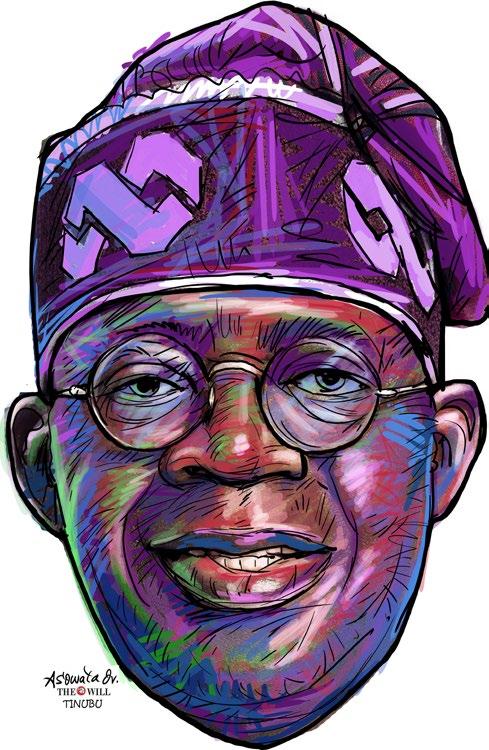
“Tinubu
said the shared mission aims to transform the livestock sector from its current subsistence model into a thriving, commercialised industry, an industry that significantly contributes to Nigeria’s Gross Domestic Product and provides decent jobs and sustainable livelihoods for our growing population
cattle are bred and meat and dairy products are produced, using modern livestock methods. This solves the problem of cattle grazing into and destroying farmlands.”
Yet the government failed to implement it. Upon ascension to office, President Bola Tinubu revisited the plan. He appointed a committee headed by a former Chairman of the Independent National Electoral Commission, Professor Attahiru Jega, to look into the plan again.
A day after the government announced the creation of a
Ministry of Livestock Development with an animal famer Idi Mukta Malha as Minister, it held a workshop to put the final touches to the plan through full stakeholder participation.
Addressing participants at a two-day Consultative Workshop of Livestock Reforms held at the State House Conference Centre, Abuja, President Tinubu gave the public the assurance that past mistakes, such as neglecting livestock farming and relying on dairy imports, would be avoided.
He pledged a robust framework to stimulate prosperity in the sector, instilling confidence in his commitment.
He said, “The livestock sector is critical, and we will give all it needs to bring value to our country. Stakeholders, I assure you that you will not regret the collaboration and investment in this sector.
“It is about time that we do it right. A country of over 200 million people and cannot serve our children one pint of milk in a classroom per day? That is not right.
“We didn’t see the investment opportunities. We didn’t see the economy of livestock in the past. Now that we have seen it, we must work together to restart the sector.’’
President Tinubu commended the Presidential Livestock Reform Implementation Committee, led by the Co-Chairman, Prof. Attahiru Jega, and the Secretary, Prof Muhammed Yahaya Kuta, for their commitment to repositioning the livestock sector.
Tinubu said the shared mission aims to transform the livestock sector from its current subsistence model into a thriving, commercialised industry, an industry that significantly contributes to Nigeria’s Gross Domestic Product and provides decent jobs and sustainable livelihoods for our growing population.
According to him, “The potential is immense: With 563 million chickens, 58 million cattle, 124 million goats, 60 million sheep and 16 million pigs, Nigeria is the leading livestock producer in West Africa. Yet, despite this vast resource, we face stark realities. Our annual production of animal-source foods, like milk at 0.7 billion litres, meat at 1.48 million tonnes and eggs at 0.69 million metric tonnes, falls far short of our needs. Our per capita consumption levels—8.7 litres of milk, 9 kg of meat, 3.5kg or 45 eggs per year—are troublingly low compared to global averages. These are 44 litres of milk, 19 kg of meat and between 160 and 180 eggs per year.
“What is more worrisome to me is the average milk yield by cow breeds managed by our pastoralists: it is a mere 0.5 to 1.5 litres per day, compared to a global average of 6.6 litres per day. We can do much better!
“The long-term neglect of the livestock sector has weighed heavily on the country’s import bills, with milk and dairy products accounting for $1.2-1.5 billion.
“Yes, we can do it. We can bring prosperity to our people. We can feed our children. From grass, we can achieve grace. We can contribute so much to the Gross Domestic Product (GDP) and provide decent jobs,’’ the President noted.
The President also thanked the Nigerian Governors Forum, NGF, chaired by the Governor of Kwara State, Abdurrahman Abdulrazaq, for supporting the reform of animal farming in the country and the Etsu Nupe, Alhaji Yahaya Abubakar, for providing the vast land in his domain in Niger State, which will accommodate many investors.
Responding, the Chairman of NGF, Abdulrahman Abdulrazak, assured the gathering of the “100 per cent buyin of the sub-national to make the reform a success because it is not just food security, but national security.’’
Abdulrazaq thanked President Tinubu for leading the initiative by chairing the implementation committee, regretting that past efforts in the same direction were reduced to files in the Ministries of Agriculture in states and local government councils due to lack of political will. He said each state should create a segment for livestock farming and extend the value chain to meat and dairy production.
The Minister of Agriculture and Food Security, Sen. Abubakar Kyari, thanked the President for his “bold action, exemplary leadership and unparalleled commitment to livestock reform.’’
Kyari assured the participants of working with the Ministry of Livestock Development to realise the President’s vision to diversify the economy and empower more Nigerians.
in Nigeria a nightmare.

While government presumably is willing to do everything possible within its power to curtail the menace, it is necessary to warn that Nigerians are tired of this endless cycle of death and destruction and they desire an end to it. They cannot continue to suffer from the reckless actions of a few citizens. Enough is Enough
igerians are still mourning the 153 people who died after an overturned petrol tanker exploded about a week ago in Majia, a small town in Jigawa State.
As always, many of the victims were scooping petrol from the overturned vehicle when it exploded and burnt them to death, some beyond recognition, while others barely survived with severe burns.
The tragic incident occurred at about 11.30 pm, at a time most residents of the remote town had gone to bed. Apparently the driver of the tanker had lost control and crashed, spilling its contents.
This is not the first time that an accident of such magnitude has occurred in the country. In fact, deadly fuel tanker accidents, often caused by a number of factors, including bad roads and poorly maintained vehicles, are a recurring disaster in this part of the world. According to available data, over 1,500 such accidents resulting in 600 deaths were recorded in 2020 alone. Majority of the dead were residents attempting to collect petrol from the overturned tanker to store in their homes. Most of them were struggling with persistent hikes in the prices of petrol, which have rendered living
On June 28, 2018, a fuel tanker laden with petrol on its way out of Lagos suddenly fell on Otedola Bridge at the Lagos end of the Lagos-Ibadan Expressway, leaked petrol and exploded. The resulting fire caught other vehicles on the bridge and burned them, killing an unspecified number of people believed to be more than the official 12 announced by the Lagos State Government, including the drivers and passengers of over 50 vehicles that were trapped.
In Onitsha, Anambra State, a petrol tanker driver reportedly lost control, rammed into a public motor park and exploded. About 85 persons were killed and several buildings, vehicles and property worth millions of naira were consumed by the ensuing fire.
Before the Jigawa tragedy, the Federal Road Safety Corps (FRSC) had issued a nationwide statement to implement the minimum safety standards for fuel tankers before they are allowed on the roads. Also, in a recent statement issued by the presidency, President Bola Tinubu said he is committed to a comprehensive review of fuel transportation safety protocols across the country. This shows how seriously the Federal Government views the issue of petrol tanker explosions and the carnage they wreak on our roads. The conduct of many fuel tanker drivers on our
roads gives cause for concerns about their mental state, particularly those ones among them who drive recklessly in total disregard for the safety of other road users.
One of the major causes of petrol tanker accidents is that many tankers that ply our roads are not designed according to international best practices. Also, tanker drivers are not properly trained on safety measures, such as the need to avoid overloading and keep to speed limits.
Apart from the absence of a government policy to effectively check the excesses of errant tanker drivers on the roads, the lack of formal training to determine the competency level of registered drivers makes it difficult to effectively tackle the problem.
While government presumably is willing to do everything possible within its power to curtail the menace, it is necessary to warn that Nigerians are tired of this endless cycle of death and destruction and they desire an end to it. They cannot continue to suffer from the reckless actions of a few citizens. Enough is Enough.
Government should understand that explosions and fire resulting from petrol tanker accidents often lead to large casualties, severe environmental pollution and huge economic losses. This is why it cannot afford to fold its arms and do nothing.
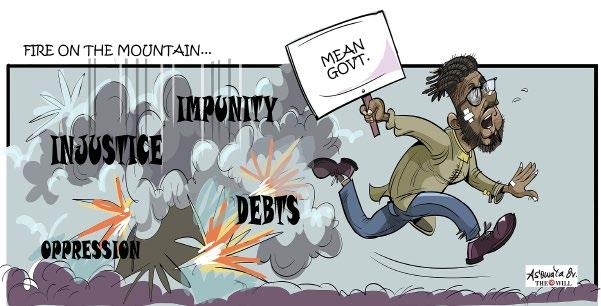


BOLA TINUBU
he Commonwealth is more relevant today than it has been in decades. If there wasn’t this global alliance of mostly English-speaking nations based on common law principles, there would be a need to create one. Commonwealth leaders are meeting this week on the island of Samoa for our bi-annual summit. Intense discussion over free and fair trade, security and climate action are occupying us 56 members – all friends
If an alliance of primarily Englishspeaking nations rooted in common law and shared commitment to global rules didn’t exist, one would need to be created. Like-minded countries would naturally come together to amplify their values, while also providing a mechanism to lend collective heft to the individual economic and geopolitical interests of each member.
The world already has such an organisation and its biannual leadership forum – the Commonwealth Heads of Government Meeting (CHOGM) – is it. Yet, every two years, like clockwork, the usual ill-informed questions about the purpose and future of this oldest international organisation of partner nations appear: How can it survive its members becoming republics? What is the purpose of an institution that is neither a single market nor a regional political union? The organisation’s demise has been predicted for decades, mostly because of the misunderstanding that becoming a republic means Commonwealth exit. Quite the opposite: it is in fact a path most members have trod. When Nigeria became independent in 1960, the Commonwealth comprised 10 member nations, three of which were republics. Nigeria became a member upon independence and then the fourth republic in 1963 – transitioning from retaining the late Queen as head of state to an elected presidency. Today, the Commonwealth boasts 56 members, of which two-thirds are republics. A few more would hardly rock the boat. History aside, today the Commonwealth is more relevant than it has been in decades. The world is moving beyond regional trade and governance blocs, shifting towards
global networks of nations with shared interests across regions and hemispheres.
The Comprehensive and Progressive Agreement for Trans-Pacific Partnership (CPTPP) – spanning the Americas and Asia, and with the accession of the UK, Europe and binding 12 countries in a trade-based pact – is one example; the Alliance for Small Island States (AOSIS), an intergovernmental organisation of low-lying coastal and small island countries, comprising 39 nations stretching across all corners of the globe is another. Although one is for trade and the other for political salience, both are based not on geography but also on a common interest – the convening principle for which the Commonwealth is the original item. While multi-continental, global networks are back in favour, that doesn’t mean the Commonwealth could not benefit from a rethink. As President of the Commonwealth’s second most populous state, I believe more can and should be done together on economic cooperation and mutual political support. Nigeria would like to see more significant intra-Commonwealth trade, an opportunity in we have collectively underachieved as an alliance. Take Africa. Twenty-one of the continent’s countries are also Commonwealth member nations. All are members of the African Continental Free Trade Agreement (AfCFTA), a 54-country continent-wide free trade zone.
Bi-lateral agreements between AfCFTA and leading Commonwealth economies such as the UK, India, and Australia would create a web of interlinked trade agreements among Commonwealth nations, driving closer cooperation and deeper integration across the Commonwealth. Britain has proposed a UK-AfCFTA trade agreement. Others should follow. Nigeria urges larger Commonwealth economies to prioritise importing materials and foodstuffs from African Commonwealth nations. Supported by bilateral trade agreements, there’s no reason why African coffee or fresh produce couldn’t be offered to Western Commonwealth members at preferential rates in exchange for investment in local processing industries. This would not only integrate our economies but also provide nations like Britain with affordable products they can’t grow, while creating jobs in Africa – reducing the need for migration by offering better opportunities at home. Nigeria and all African nations seek Commonwealth support for a bid for permanent representation on the United Nations Security Council. Africa remains the only continent without a permanent seat on this crucial global decisionmaking body, even though it has been the subject of 70 per cent of its resolutions since the end of the Cold War. Africa remains a constant focus of the Security Council yet lacks a constant say.
The Commonwealth has finally begun caucusing as a group at the United Nations, a development that surprisingly only became official a few years ago. While not every vote is or should be taken as a bloc, one thing is clear: securing an African seat on the UN Security Council with Commonwealth backing would supercharge the relevance of our 56-country family. This move would decisively prove the Commonwealth’s importance and silence doubts about its future. Far from done, the Commonwealth’s time has come.
•Tinubu is the President of the Federal Republic of Nigeria
BY PROMISE ADIELE
Nigeria’s former military head of state Mr Yakubu Gowon recently marked his 90th birthday anniversary. Expectedly, many Nigerians felicitated him on the landmark occasion. Peter Obi, Labour Party’s presidential candidate in the 2023 general elections, also congratulated the nonagenarian. However, Obi’s congratulatory message has set various news and media platforms agog. Many people fierily questioned the politician for ingratiating himself with a man who legislated the genocide of over three million Igbo people during the Nigeria–Biafra war.
Swayed by the emotions his congratulatory message to Gowon provoked, Obi issued a statement explaining why he congratulated Gowon which, in summary, is predicated on his drive for forgiveness, renewal, healing, and the emergence of a New Nigeria. The incident has once again called the attention of millions of Nigerians to Peter Obi, a private citizen who does not hold any public office, reminding us of the symbolic patch he occupies in the country’s socio-political terrain. Given the way Nigerians bestir over anything about Peter Obi, it seems he is the de facto President of Nigeria. Sadly, Nigerians do not expend the same energy and vigour in holding government officials accountable at all levels.
I once wrote an essay titled “Peter Obi and Nigeria’s Post-Election Blues.” In that essay, I submitted that “It confounds every iota of reason and logic that after the 2023 general elections and the emergence of winners at all levels, some Nigerians are fixated on Peter Obi, the Labour Party’s presidential candidate in the last election. Shockingly, the press and some media spaces are awash with stories about Peter Obi as if he is the President of Nigeria.
I argued that Nigerians hold Peter Obi accountable in every conceivable way as if he is their president. One wonders if Peter Obi has lost the right as a private citizen to live a normal life or make choices. Anytime he coughs, it becomes a national issue. Any time he blinks, it becomes a motion for debate. Nigerians fervently anticipate his opinion on every issue. During Gowon’s recent celebrations, many Nigerians and other distinguished personalities wished him well. Dr. Chidi Amuta, a respected senior colleague in the literary fraternity wrote an epistle praising Gowon. Other eminent Nigerians did the same and no one batted an eyelid. Immediately after Obi sent his birthday message, the entire country convulsed. Nothing could be more illogical.
It is understandable if some southeasterners, especially Igbo people, are miffed toward Gowon for obvious reasons. But Gowon and Ojukwu, the principal actors in that war made peace before the exBiafran warlord passed on. Generally, the Igbo people and many southeasterners have made significant progress after the war, proving better than their counterparts in most parts of Nigeria. The Igbo have successfully reintegrated into Nigeria. They live across the country, doing big businesses and flouring in various vocations. Indeed, many people excoriating Peter Obi for sending the birthday message to Gowon are tied to many northerners as friends and business associates. At such times, they do not remember the war. But Obi congratulates Gowon and we all remember the war. It is within Obi’s right as a private citizen to congratulate whoever he likes. He did not commit any crime. To ask him not to congratulate Gowon is to mortgage his conscience and invidiously hold onto the past with all its corrosive, retrogressive potential. Although the current Obi-Gowon saga has elicited a display of historical ignorance of colossal proportions among people, we must bury the hatchet and move on. I have read very laughable but shameful accounts of the war and the events that led to it in the past few days.
The purveyors of these misleading stories are positioned to achieve deluding objectives but the conscientious mind must not succumb to such facile, jejune propaganda. Peter Obi is aspiring to

be a national leader, therefore given Nigeria’s fragmented national consciousness, it is apt for him to preach peace and forgiveness. Peter Obi has earned his place in the historical annals of Nigeria as a reconciling phenomenon whose emergence has promoted the hunger and possibility of a New Nigeria. Nigerians cannot be wishing for a New Nigeria and be stuck in all the destabilising morass that has held the country down over the years. If we must conspire, let us conspire to enthrone an equitable national structure that would lead to the emergence of a New Nigeria and not against a private citizen. That brings me to the issue of conspiracy.
NIGERIANS CANNOT BE WISHING FOR A NEW NIGERIA AND BE STUCK IN ALL THE DESTABILISING MORASS THAT HAS HELD THE COUNTRY DOWN OVER THE YEARS. IF WE MUST CONSPIRE, LET US CONSPIRE TO ENTHRONE AN EQUITABLE NATIONAL STRUCTURE THAT WOULD LEAD TO THE EMERGENCE OF A NEW NIGERIA AND NOT AGAINST A PRIVATE CITIZEN
One of the remarkable ingredients of Julius Caesar’s tragedy is his complicity in the conspiracy that led to his tragedy. Is there a conspiracy to implicate Peter Obi in some ways? Perhaps. But he must be careful not to facilitate or become a catalyst in actualizing that conspiracy. At the end of Rotimi’s The Gods Are Not to Blame King Odewale avers “the powers would have failed if I did not let them use me”. He admits that he played into the hands of the powers that designed his tragedy. Peter Obi must be careful not to play into the hands of his detractors. Caution to speak and associate should be his watchword. Conspiracy is a fact of the human community. It happens everywhere – at the workplace, the family, church, and society. It takes divine wisdom to recognise conspiracy and take precautions. The intentions of conspirators are clear – to humiliate, disgrace, and sometimes kill. Unfortunately, a deluded, gullible polity will easily swallow the apocryphal narrative of conspirators. Sometimes such narratives and the associated evidence are elementary and laughable. They arise from a heart full of bile and envy. However, we are encouraged by the avowal of the Holy book in Job 5:12 “He disappointed the devices of the crafty so that their hands could not perform their enterprise”. Those who have been victims of conspiracy can easily relate. Peter Obi, beware. Many people, within and outside Nigeria interpret the person of Yakubu Gowon in various ways. While some people think he is a hero, other people conceive him as a villain on whose shoulders rest the blood of millions of innocent people including women and children. I have my opinion about Gowon, but it is inconsequential in the general scheme.
online at www.
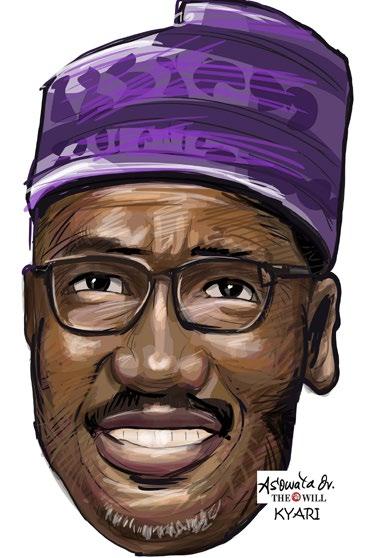
With Nigeria struggling to meet its Organisation of Petroleum Exporting Countries (OPEC) quota of 1.7 million barrels per day (currently about 1.4 million) and tackle its lingering revenue challenge, the Kolmani oil and gas wells in the North-East Gombe and Bauchi states should begin to hit the pipelines.
Former President Muhammadu Buhari officially inaugurated the commercial production of crude oil and gas from Kolmani on November 22, 2022, thereby kicking off the drilling of oil in the northern part of the country. Located along the fields of Gombe and Bauchi, the Kolmani project, with Oil Prospecting Licence 809 and 810, lies in the Gongola Basin of the Upper Benue Trough, straddling the two Northern states.
With this Nigeria is expected to tap into the one billion barrels of crude oil from the first reservoir of the Kolmani oil fields. Oil exploration could reach 19 billion barrels of crude with the discovery of more reservoirs, the Nigerian National Petroleum Company Limited (NNPCL) explained.

NCDMB to Sponsor New R&D Projects, as Triple Helix Nigeria Unveils Vision
The NNPC further revealed that the country will also reap over 500 billion standard cubic feet of gas from the first reservoir with prospects for higher volumes of gas.
Continues on page 15
EDITOR Sam Diala
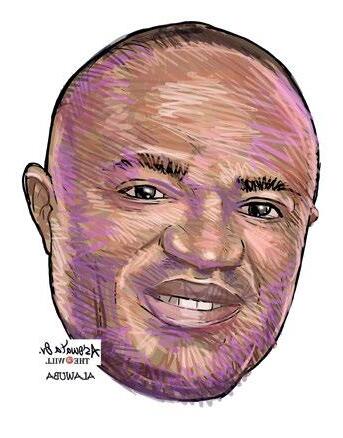
Determined to remain atop industry performance rating, Africa’s Global Bank -- United Bank for Africa (UBA) Plc, sank a whopping N135.4 billion in its digital infrastructure during the nine months ended September 30, 2024. This constitutes a 121.4 percent increase compared to N61.1 billion expended in the corresponding period of 2023.
According to its unaudited results for the third quarter ended September 30, 2024, UBA recorded a 90.7 percent surge in e-banking income which climbed to N144.4 billion from N75.7 billion in the equivalent period of the previous year.
The record is consistent with the performance of the bank as it benefits largely from its technology-led initiatives targeted at improving customer experience over the past few years
THEWILL reports that UBA has remained atop its peers in e-banking revenue as it injects huge resources, both human capital and facilities, to maintain the reputation of excellent service delivery.
The e-banking income includes revenue from electronic platforms, such as mobile applications, USSD channels, Internet banking, ATM, PoS as well as other debit and credit card transactions.
An earlier analysis of the FY 2023 financial statements of the Tier-1 group in their Holco structures, revealed that the Big Five (UBA, Zenith, ACCESS CORP, GTCO and FBNH) generated a total of N385.85 billion in e-banking revenue as against N277.14 billion in 2022, representing a 40 percent increase.
UBA earned the highest e-banking income among the Tier-1 financial services institutions during that year. The bank generated N125.57 billion in 2023 representing 32.5 percent of the Tier-1 group total e-banking income for the year.
By this, Africa’s Global Bank grew its e-banking income by 59 percent

when compared with N75.94 billion it earned in 2022 to emerge the first in 2023, followed by Access Bank which recorded N101.61 billion against N59.65 billion in theTier-1 group.
The deft application of technology contributed to the UBA’s impressive performance in the third quarter ended September 30, 2024, where it recorded strong and impressive growth across all its key indicators. In line with its growth trajectory in previous periods, UBA’s gross earnings grew significantly by 83.2 percent to N2.398 trillion up from N1.308 trillion recorded in September last year, while its net Interest income which stood at N443.0 billion at the end of the third quarter in 2023, rose impressively by 149 percent to N1.103 trillion in the period under consideration.
The bank’s financial report filed with the Nigerian Exchange Limited last week, also indicated a 20.2 percent increase in Profit before tax (PBT) to close at N603.48 billion compared to N502.09 billion recorded at the end of the third quarter of 2023. Similarly, profit after tax also rose remarkably by 16.9 percent from N449.26 billion recorded a year earlier to N525.31 billion in the period under review.
As in the preceding two quarters this year, UBA continues to maintain a very strong balance sheet, with Total assets rising to N31.801 trillion, representing a 54.0 per cent increase over the N20.653 trillion recorded at the end of December 2023.
Total deposits rose to N26.50 trillion, representing a 52.7 per cent rise, up from N17.355 trillion at the end of the last financial year. This indicates the growing confidence of the public in the 75-year-old financial services institution. It also points to the success story of its customer-focused digital initiatives.
Commenting on the result, UBA’s Group Managing Director/CEO, Mr. Oliver Alawuba, expressed pleasure that the Group continues to record
Continues on page 15
strong and sustainable growth in its various revenue streams, building on its strong performance earlier in the year.

The field, according to its promoters, was to start producing about 50,000 barrels of crude oil per day. It holds over one billion barrels of crude oil reserves, shooting up Nigeria’s oil reserves to over 38 billion barrels.
UBA has remained atop its peers in e-banking revenue as it injects huge resources, both human capital and facilities, to maintain the reputation of excellent service delivery
According to the GMD, the Bank’s performance has been underpinned by consistent strong growth on all core and sustainable banking income lines. He added, “Our substantial investments in technology are yielding tangible business value. This commitment is instrumental in delivering enhanced customer experiences and optimizing operational efficiency.”
Further analysis of UBA’s Q3 2024 report showed that the e-banking revenue of N144.4 billion constitutes a 36.7 percent of the total Fees & Commission income of N392.8 billion during the nine-months period, which contributed in exceeding the N182.3 billion recorded in the equivalent period of 2023 by 14.4 percent,.
Also, IT-related expenses rose to N32.3 billion during the review period from N6.4 billion in the equivalent period of 2023, representing an increase of 404.6 percent. The 96.5 percent increase in operating expenses to N552.96 billion from N237.1 billion in 2023 9-months period was largely underscored by the increased investment in digital infrastructure.
Investment in human capital development (including drivers of the ICT infrastructure) rose by 134.6 percent to N5.2 billion against N2.2 billion recorded in the corresponding period of the previous year – confirming UBA’s commitment to digital infrastructure advancement.
Nigerian banks have embarked on aggressive upgrade of their e-banking channels for maximum performance and enhanced revenue generation, which has created a stiff competition among them.
For instance, the banks have engaged in systems upgrade in recent times which created service disruptions to the consternation of the customers and other banks’ services users. In the past weeks, major Nigerian deposit money banks have experienced system downtime that stretched beyond what the public had expected, or is used to.
However, despite the prolonged and severe service disruptions, the exercise has not resulted in the loss of customers’ deposits or other assets maintained by the bank – traced directly to it.
Zenith Bank last week announced the successful conclusion of its system upgrade.
In a message on Tuesday, Zenith Bank expressed gratitude to its customers for their patience during the upgrade process, promising improved services moving forward.
“Dear valued customer, thank you for your patience. We have successfully concluded the system upgrade, and you will experience improved services going forward,” the bank said.
The push for migration to new core systems is driven by multiple factors, including security, cost management, and operational flexibility. Industry experts explained that security concerns are a major reason for the upgrade. With cyber-attacks on the rise, banks are seeking more secure systems to protect customer data and financial information.
Sterling Bank customers were among the first to experience severe disruptions in September when the bank began migrating its core system from T24 to SEABaaS, a new locally developed banking application. This migration caused multiple transaction failures, frustrating customers who were unable to use the bank’s services for days.
In a similar move, GTBank recently transitioned from its Basis/Banks software, provided by ICS Financial Services, to Finacle, an Indian banking technology solution. This switch was not without challenges, as customers also reported service interruptions during the transition period.
In his address at the event, Buhari said the facility attracted $3 billion worth of investments despite the lack of appetite in the oil sector.
He said, “Considering the land-locked location and the huge capital requirement, the economics of the project is a challenging proposition."
The group chief executive officer of NNPC, Mele Kyari said: “There are certainly more discoveries to be made if exploration activities continue. Again, we are confident that the current efforts of the administration will lead to improved security in the northeast”.
About two years after the commissioning of the Kolmani oil field with drilling said to have commenced, nothing significant has been heard about the massive oil and gas deposits in the area. Instead, the nation continues to lament the low level of oil production and its resultant revenue shortage.
The NNPC which showcased the facilities in their post-commissioning state expressed high optimism about the huge difference the production of oil and gas in the Kolmani fields would be.
According to the Ministry of Finance, Nigeria’s total debt stock as of the second quarter ended June 30, 2024 was N134.4 trillion ($91.3 billion).
This was an increase of 10.35 percent from the N121.7 trillion recorded in the first quarter announced by the Debt Management Office (DMO).
Nigeria has been borrowing massively to fund her almost N10 trillion budget deficit and to stabilise the naira by shoring up the foreign reserves and battling to increase oil production to meet the OPEC quota and settle existing resource-backed loans incurred under the immediate past government of former President Buhari.
The hype that went with the federal government announcement of commissioning of the Kolmani oil and gas wells has not been matched with the anticipated production of the natural resource about two years now.
Like the repair of the nation’s refineries, the NNPC has remained silent over the Kolmani oil and gas that have not hit the pipelines since November 2022 when the wells were commissioned with great fanfare.
The Nigerian Upstream Petroleum Regulatory Commission (NUPRC), had said at the commissioning of the Kolmani oil and gas wells that the oil fields could hold as much as one billion barrels of crude oil reserve, which could significantly boost Nigeria’s oil reserve.
The agency noted that oil discovery in the north was coming at a time when crude oil production had dropped to around one million barrels per day in the country, as a result of oil theft and pipeline vandalism, thereby hobbling the ability of the country to earn foreign exchange.
Like the NNPC, the NUPRC has maintained a stout silence over the commissioned Kolmani oil and gas wells, while Nigeria reels on the throes revenue challenge.

The Nigerian Content Development and Monitoring Board (NCDMB) has signaled plans to support new research and development projects as part of its Technology Innovation and Incubation Strategy and the enduring commitment to catalyze innovation in the Nigerian oil and gas industry and linkage sectors.
The new R&D projects will add to the 14 applied research projects NCDMB currently sponsors at various stages of technological readiness, one shining example being the Amal Technology, which manufactures gas leak detection devices and printed circuit boards at Abuja.
The Executive Secretary, NCDMB, Engr. Felix Omatsola Ogbe hinted this in the keynote address he delivered at the 2024 edition of the Triple Helix Nigeria SciBiz Conference in Abuja, attended by industry representatives, researchers from knowledge institutions and policymakers, with the theme “Integrating Research, Innovation, and Policy: Triple Helix Pathway to Research Commercialisation.”
He described research and innovation as the
lifeblood of Nigeria’s hydrocarbon industry, adding that NCDMB has consistently applied local content development to enhance research and commercialisation of innovative solutions for the country’s oil and gas sector. This way, it hopes “to accelerate the circle of innovation and wealth creation by fostering partnerships between universities, research institutions, and industry players.”
Represented by the General Manager Research and Statistics, Mr. Silas Ajimajaye, the Executive Secretary charged Nigerians to embrace the spirit of innovation and work together to build a future where research and development are at the forefront of the national agenda.
According to him, “Creating an ecosystem where research, innovation and policy can interact has never been more critical as we steer through the complexities of the 21st Century,” noting that “the Triple Helix Model of academia, industry, and government collaboration is an appropriate international business framework that adds to our strength of innovation and ensures that all efforts go into fuelling the grand old aim –National Development.”
He further disclosed that “the $50 million Nigerian Content Research and Development Fund was created by the Board in 2020 from the Nigerian Content Development Fund (NCDF), and was designed to provide much-needed research funds in the oil and gas R&D space.”
The President, Triple Helix Nigeria, Alhaji Abdulmalik Halilu, in his presentation, said the THN, whose membership has grown from an initial 12 founding members to 240, realises the fact that research and innovation have fuelled human and societal development and that the body seeks to catalyse enterprises so oriented.
According to him, THN is committed to foster value creation in the Nigerian economy in line with local content philosophy of looking inwards, promote the development of technology skillsets required to solve African problems by Africans, promote strong advocacy platform for building research capabilities in knowledge institutions, and foster structured partnerships between industry and research community, to attract research-based funding in the direction of Africabased researchers.
BY MARCEL OKEKE
The latest data from the National Bureau of Statistics (NBS) on capital importation show that Foreign Direct Investment (FDI) inflow into Nigeria dropped by a whopping 75 per cent between the first and second quarters of this year. Between the second quarter 2023 and the second quarter this year, the drop amounted to 65.3 per cent; resulting in only US$29.8 million FDI inflow in the second quarter 2024 (q2 2024)—the lowest in over a decade.
The NBS data showed that much of the FDI in q2 2024 came from equity investment—amounting to US$29.8 million—representing a sharp decrease of 75% compared to US$119.17 million recorded in q1 2024. On a yearon-year basis, the FDI declined by 65.33 per cent from US$86.02 million in Q2 2023. These significant declines depict the challenges the Nigerian economy faces in attracting long-term investment in a very tough global economic environment and numerous domestic issues.
In the whole of 2023, FDI inflow into Nigeria fell by 26.7 per cent to US$3.9 billion, from US$5.3 billion in 2022. This was essentially due to political risks and elevated uncompetitive operating environment. Ten years ago, in 2013, Nigeria recorded FDI inflow of US$5.56 billion; it attained a ‘peak’ of US$8.84 billion in 2011—and has kept recording declines.
Globally, FDI flow has come to be an unofficial vote of confidence (or otherwise) on various economic jurisdictions—with more inflow depicting a healthier and more attractive investment climate. Thus, FDI by definition, could mean an ownership stake in a foreign company or project made by an investor, company, or government from another country.
Unsurprisingly, while FDI inflow into Nigeria has kept declining, the Foreign Portfolio Investment (FPI) component of capital importation into the country has been regaining buoyancy. Indeed, with the virtual drying up of FDI in the first half 2024 (H1 2024), FPI and ‘other’ components beefed up the overall capital importation.

downturn in FDI.
This reflected in Q2 2024 where Nigeria recorded a total capital importation of US$2.60 billion of foreign currency loans, which include portfolio investments; and direct loans contributed US$2.55 billion, representing 98.08 per cent of the total inflows. The preference for loans is obviously as a result of investor caution, with foreign investors choosing safer financial instruments (e.g. FGN Treasury Bills) rather than committing to long-
Fuel subsidy removal— and its attendant unending surging fuel prices (from below N200 per liter in May 2023 to now over N1,000 per litre ) has become an existential threat to not only businesses
but also all economic agents
Thus, in H1 2024, total capital importation into Nigeria stood at US$6.0 billion. However, further decomposition of this figure only suggests a strong recovery in “hot money” or FPI flows. This trend being a function of improvement in sentiment spurred by improving yield environment, sequel to consistent hikes in interest rates by the monetary authorities. Thus, in q2 2024, FPI alone accounted for 54 per cent of total capital importation. Foreign currency loans also came in to push up capital inflows, despite the
The dynamics driving this trend remain yet unsubdued; which is why despite a marginal drop to 32.15 per cent in August, the inflation rate resumed an upward jump in September—hitting 32.70 per cent. One of the core drivers of the high inflationary trend, namely food inflation—rose from 37.52 per cent in August to 37.77per cent in September.
This high and yet rising inflationary trend has not only thoroughly weakened consumer purchasing power, it has also led to huge (unsold) inventories on the part of producers/manufacturers. The high inflation is essentially owing to ‘cost-push’ effect arising from high cost of funds: either as loans due to high interest rates regime or imported inputs procured with dollars from the forex (FX) market where the Naira is badly hit.
In point of fact, the Government would appear to have come to its wits end in the efforts to attain (even if only) stability in the FX market. In a space of one year, the market has seen the good, the bad and the ugly, and yet the Naira rate against the dollar keeps moving like a yo-yo. Today, in the ‘official’ market, the exchange rate is about N1,700/$. This is very troubling; and remains a critical disincentive to businesses and investors—both local and foreign.
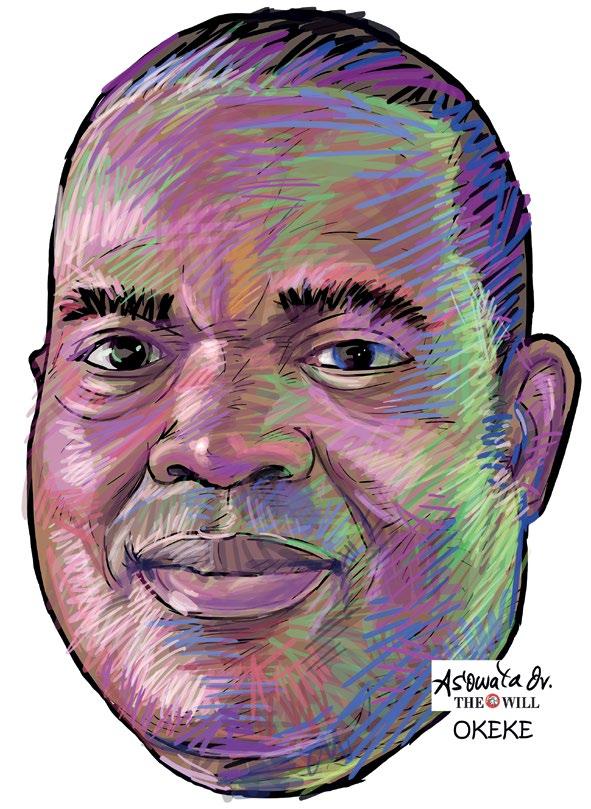
term projects via FDIs. It is a no-brainer therefore that Nigeria’s capital importation is dominated by foreign currency loans (in dollars and others) and short-term investments and debt instruments. These inflows provide only temporary liquidity (since FPIs are ‘hot money’) but do not offer the macroeconomic stability that make for economic growth and development.
In truth, the Nigerian investment climate is yet to be competitive vis-à-vis other economic jurisdictions. It is still a highly volatile milieu, underlined by uncertainty borne out of subsisting policy somersaults, prevarications and tergiversations on the part of the officialdom. This ominous trend is amply reflected in the state of virtually all economic indicators—which are showing outcomes contrary to Government expectations. In a space of one year, the rate of inflation, for instance, has assumed a runaway trend: jumping from 22.70 per cent in June 2023 to over 34 per cent in June 2024.
Fuel subsidy removal— and its attendant unending surging fuel prices (from below N200 per liter in May 2023 to now over N1,000 per litre ) has become an existential threat to not only businesses but also all economic agents. As the rising fuel prices feed into cost of transportation, high electricity tariff and sundry taxes and levies: all lead to more impoverishment, pain and hardship for all economic agents.
At the background of all these is the lingering insecurity in all nooks and crannies of the nation; a worsening condition that has sent millions of citizens into internally displaced peoples (IDPs) centres across the country. Farming and farmers have practically become endangered species, especially in many of the places widely referred to as the ‘food baskets’ of the nation. Bandits and banditry loom large.
Same phenomenon affects the mainstay of the nation’s economy—crude oil sector—where massive theft has come to leave only a little of that national ‘common asset’ for national use. And this is why for quite a-while, rather than improving, the level of production of crude has been either stagnant or declining. Despite the fact that Nigeria’s 2024 budget is based on the assumed crude oil production level of 1.78 million barrels per day (mbpd), as of September 2024 the country could only produce 1.32 mbpd!
In all, the poor investment climate and low-ranking ‘Ease of Doing Business’, accentuated by the horrible outcomes of recent economic policies, are sure ways of scaring away both local and foreign investors. All these qualify as ‘how not to attract FDIs’ in a world that is a global village. At best, Nigeria’s volatile environment qualifies only as a very temporary domain for ‘hot money’; which is why some modicum of FPIs have been attracted. But in the end, to what end?
• Okeke is a practising Economist, Business Strategist, Sustainability expert and ex-Chief Economist of Zenith Bank Plc

BY MICHAEL JIMOH
For two consecutive Fridays this month, journalists mainly on the Arts beat in media houses in Lagos literarily had their hands full. And the source of that bountiful harvest (of cash prizes, laptops, Samsung Galaxy A 15 phones, plaques and multiple awards) was none other than pre-eminent gas company Nigeria Liquefied Natural Gas when it marked 20 years of consistent coverage of the Nigeria Prize for Literature and Science by the press. Date was Friday October 4 and venue was the very swank Marriott Hotel with its imposing presence on Joel Ogunnaike Street, GRA Ikeja.
A week later, on Friday October 11, many of the same journalists were again guests of NLNG at an equally towering Eko Hotel and Suites, Victoria Island for what has become routine since 2004.
Thanks to the press which NLNG celebrated exactly a week before at Ikeja, the prizes have become as much household names in Nigeria as the Nobel is to the rest of the world and they have risen in prestige making them the most contested literary and science competitions in Nigeria. Eager to give back to the press that has stood by it for all those years, the event at Marriot was to appreciate and celebrate them for their coverage. And celebrate them NLNG did in a grand way - with some surprises for the journalists caught completely unawares.
For most of the journalists invited, they had a fairly vague idea what the event was all about: “Celebrating The Voices of Impact: Nigeria Prizes @ 20.” But little did they know one of them would walk away with N5m at the end of the day. But by the time the keynote speaker, Funke Egbemode, former President of the Nigeria Guild of Editors, began her speech titled, “Celebrating Voices of Impact:
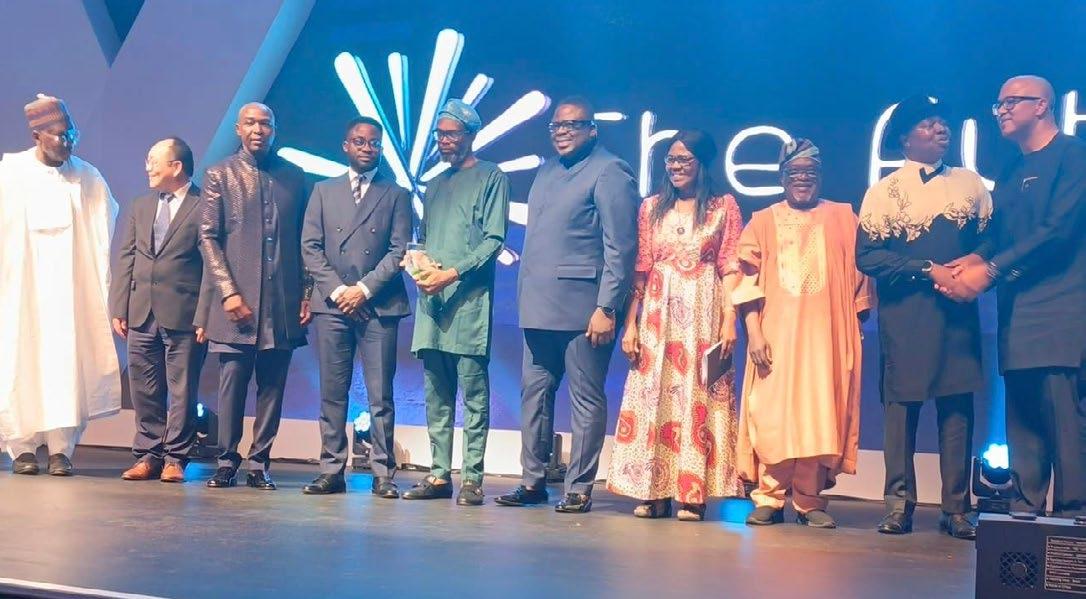
destination and so had forgotten their initial objective of a surprise raid. The water? To revive their flagging spirit.
The NLNG Story,” some in the audience began to suspect there might be something in the offing for some of the journalists that have faithfully reported the gas company’s activities these past years.
“NLNG’s decision to institutionalise a prize in literature about 20 years ago was a move to save Nigeria’s voice in the global stage,” Egbemode said. “Yes, the country had produced the likes of Prof. Soyinka, the great Chinua Achebe, Niyi Osundare, Cyprian Ekwensi, Femi Osofisan, and the like; but the diminishing return was becoming evident at some point with a sharp dip in the quality of writing that was gracing the public sphere at a time in history. That quality has since improved, thanks to the impactful contribution of NLNG.”
Continuing, Egbemode said the NLNG Literature Prize journey “has not been a lone one, but one with other critical partners and contributors to the process that translates to social change and development which defines NLNG’s interventions in the society,” insisting that “one of such partners has been the media.”
“Today, we pay glowing tributes to everyone who works to bring this impact to our country and the businesses that operate therein. We honour and celebrate journalists and media professionals who have walked this road of operational excellence with NLNG over the past 35 years and 20 years of institutionalising the literature prize among other prizes.”
Along with Egbemode’s speech was a panel discussion on how journalists can leverage on AI in “archiving and documenting” so as to keep track of their publications. The discussants were Tolu Ogunlesi, social media handler for former President Muhammadu Buhari, Tayo Fagbunle, Editor of BusinessDay. The discussion was moderated by Funke Treasure, journalist who also doubled as the compere. Besides keeping record of their reports, there was also the need, Fagbunle suggested, for journalists to “digitise and monetize,” especially in this digital age.
As NLNG events go, there were the musical interludes as well, plus a light comedy performance by Laugh Doctor who did not disappoint at all, considering that he lacks the clout and reach of the more recognised stand-up comics in town. One of his gigs that got his audience in stitches that morning was of a band of intrepid robbers who marked out a certain apartment in 1004 VI for operation. The elevator was inoperable so the hoodlums had to hightail it up a long flight of stairs. By the time they got to their target, they were gasping for breath. Fatigued by lumbering up the interminable stairway, they had to beg for ice-cold water from the intended victim when they finally got to his apartment. Apparently, the hard-eyed criminals had been humbled by the great trek to reach their
Of course, there was a more serious matter at hand when AnneMarie Palmer Ikuku, Manager, Corporate Communications and Public Affairs of NLNG, sidled up the stage to announce that there were prizes for journalists who had distinguished themselves in covering the Literature and Science Prizes from inception. It was a one-off thing though, she said. Still it was in recognition of the reporters’ contribution to promoting the gas company. Earlier in his welcome address, Odeh had let on that the company would be starting off and bankrolling a prize for Energy Reporter of the year with the DAME Award, a first of its kind in the Diamond Award for Media Excellence.
Before announcing the overall winner, Palmer-Ikuku called out Terh Agbedeh as “the most consistent,” Gabriel Akinadewo “the most versatile,” Chidinma Agwu “the most punctual” and Sopuruchi Onwuka “the most engaging.” Of course the reporters were caught off guard, but none more so than Prisca Sam- Duru of Vanguard when Kadaria Ahmed declared to all that she was the winner of the major prize for writing the best stories and the most consistent in reporting the Literature Prize in 20 years.
With her right hand to her chest, temples throbbing and a heart beating correspondingly, Prisca expressed disbelief after Ahmed declared her winner of a competition not contested for. Neither were the journalists, including Prisca herself, aware that any such competition had even commenced. It was a total surprise package NLNG kept from the press until that day in question.
Which mostly accounted for Prisca’s stunned disbelief. “Am I dreaming?” She said moments after Ahmed’s announcement. No, it was true, and the audience cheered her on to the stage where the General
Manager External Relations of NLNG, Andy Odeh presented her with a plaque, a cheque for N5m and a laptop for being not only the most consistent in covering the Nigeria Prize since inception in 2004, but the best one with the best reportage, “beyond mere press releases,” according to the judges, composed of communications guru, Taiwo Obe as chairman, Chido Nwakanma and Ahmed as members.
As if living up to her reputation as the most consistent journalist in reporting the Literature Prize, Prisca herself was at Eko Hotel & Suites exactly a week later to cover the mother of all prizes sponsored by NLNG.
By now, Nigerians and the rest of the world are pretty much aware that Olubunmi Familoni won this year’s competition for Children’s Literature with his entry ‘The Road Does not End’ out of three shortlisted candidates. He went home that night with a $100, 000 cash prize.
Managing Director and Chief Executive Officer of NLNG limited, Philip Mshelbila, praised the finalists for writing
“In NLNG, we supported the declaration of the Decade of Gas, which the Federal Government launched in 2021 to help Nigeria achieve industrialisation, economic prosperity, and tackle energy poverty by using gas as an enabler which aligns with NLNG’s vision to be a globally competitive LNG company helping to build a better Nigeria
stories that symbolize children as future, synchronising with the theme of the gala night “The Future.”
He also reemphasised NLNG’s drive for excellence which is the focal point of the competition from the get-go.
But a thoroughgoing gas man, he couldn’t resist pitching in a word or two about the company he helms. “In NLNG, we supported the declaration of the Decade of Gas, which the Federal Government launched in 2021 to help Nigeria achieve industrialisation, economic prosperity, and tackle energy poverty by using gas as an enabler which aligns with NLNG’s vision to be a globally competitive LNG company helping to build a better Nigeria.
I have expressed optimism in several fora that the Decade of Gas policy would enable the country to catch up with the industrialised countries of the world if successfully implemented as planned, while at the same time decarbonizing our ecosystem.”
In his acceptance speech, the star of the night Familoni, and like previous winners, commended the gas company for “creating the annual prize platform which has elevated literature and empowered many writers.” With the prestigious $100, 000 award, Familoni is the latest addition to a constellation of dozens of Nigerian-born writers who have caught the eyes of successive judges in a literary competition that has been unequalled so far in the country.
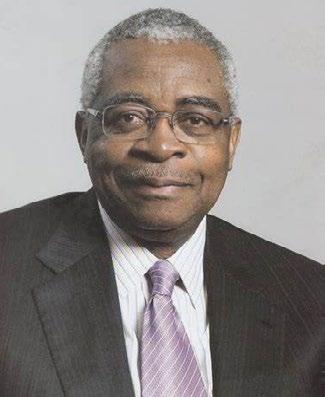


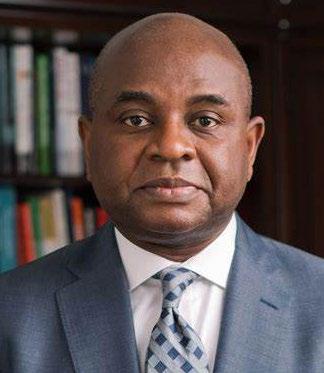



In commemoration of Breast Cancer Awareness Month, an occasion for raising awareness of Breast Cancer and sourcing funds for research into its cause, prevention, diagnosis, treatment and cure, Atinuke Lawal speaks with IVORY UKONU about her battle with breast cancer and how she triumphed over it. Excerpts:
Howdid you discover that you had breast cancer?
I discovered it on my own. I was at home that day. I hardly touch myself, but for some reason, my hand went there and I felt something like a peanut inside my skin. This wasn't normal. Before then, I never met anyone that had breast cancer. I only know cancer starts with a lump. Of course, when you haven't seen anyone literally go through the ordeal, you really won't know what it is about. That moment cancer crossed my mind, I quickly dismissed it, believing that it wasn't the disease but something else that would just fizzle away with time. I couldn't touch it; I just took my mind away from it and didn't bother again. About three days later, I still felt that it was there. And then I got worried, knowing that whatever was there, which didn't fizzle away within three days, must be very unusual. So, I searched Google. I wanted to know what it means to have a lump in the breast. Google said there were two types of lumps: the benign and the cancerous. But because I felt I was a very healthy person as I hardly fell ill and never had cause to be hospitalised for days except when I went to have children, I just categorised mine as not being cancerous. Now it was about the same time Ebola was reportedly brought into Nigeria by a foreigner. So it was a bit scary for me to attempt to go to hospital to check what the lump was about.
I just waited, hoping that the lump would fizzle away. After Nigeria was certified free of Ebola, I went to a hospital and got it checked. The doctor said he didn't think it was cancer, but that I should do a mammogram. If you are over 40, you are told to do a mammogram and if you are less than 40, you are told to do a breast scan. I had just clocked 40 that year. So, I did a mammogram. But the mammographer also did a breast scan for me. Two weeks later, I got the result and I was told it was benign. I was relieved, but I was advised not to leave the lump lest it turns cancerous. So, I went for a lumpectomy.
At what point did you discover it was cancerous?
After the lump was removed, I was given the specimen to take for histopathology. Two weeks later, I collected the result of the test which was sealed and meant for the doctor, but out of curiosity while driving home in traffic, I opened it. I mean, why would anyone give me my own test result and ask me to take it to a doctor without me checking it. Boom! The first word I saw was 'malignant' and I immediately became jittery. I didn't know what to do. I eventually reached out to the pathologist who conducted the test. I asked him if the lump was cancerous and he affirmed that it was. Now, if I wasn't given the specimen personally at the hospital where I removed the lump and they had carried out the test on the specimen themselves, there was no way I would have been convinced that it was not exchanged for a specimen that wasn't mine. Because how could I have done the first test and the result said it was benign only for me to have taken out the lump and another test revealed that it was cancerous?
So, you were misdiagnosed?
Yes. A lot of people have died in Nigeria because of wrong diagnosis. People do get tested and are given wrong diagnosis. And before they will realise what is wrong, they would have been far gone with their ailment. Is it true you lived in denial after diagnosis for almost two years?
Yes, but it wasn't intentional. I first noticed the lump around May/June 2014, just as Ebola reached Nigeria. For fear of contracting the virus, I avoided going to the hospital. By October, after Nigeria was declared Ebola-free, I went for a mammogram and the doctors recommended a lumpectomy. However, I didn't have the procedure until November of that year at a reputable government hospital. The experience of getting the lump removed was a sad one. Though I wanted to address the situation properly, I decided to leave the matter in God's hands, knowing that pursuing it might cost some people their jobs. I was simply relieved to have the lump out and thought that would be the end of it. But shortly before Christmas in 2014, I received the devastating news that the lump
was cancerous. I had no choice but to return to the same doctor who performed the lumpectomy, hoping he would interpret the results differently. Unfortunately, he confirmed the diagnosis and informed me that I would need to start treatment, followed by a mastectomy—the removal of my breast. I had always been self-conscious about the small size of my breasts, but after having children, they became fuller, and I was finally happy with how I looked. Now, I was being told that my breast needed to be removed. It was incredibly difficult to accept.
Did he discuss anything about chemotherapy with you? No, he was more focused on surgery. When he mentioned a mastectomy, I just shrugged, left his office, went to my car and cried my eyes out. I tried to stay positive, but I had already decided that if I was going to get treatment, it wouldn't be in Nigeria. After my experience with the lumpectomy, I concluded that we didn’t have professional doctors in the country. So, I began to prepare to travel abroad for treatment in January 2015.
However, my visa applications kept getting rejected—first by the United States Embassy and then by the United Kingdom High Commission. Meanwhile, time was passing and I didn’t understand the consequences of delaying treatment after the lumpectomy or after discovering that the lump was cancerous.
During this time, I was deeply depressed.
To distract myself, I attended parties and surrounded myself with people to avoid feeling lonely. I tried to keep myself happy. But by November 2015, the lump had returned in the same spot and fear began to set in. I even attempted to travel to South Africa for treatment, but that plan also fell through. I was left with no choice but to wait, hoping for a miracle. In January 2016, something miraculous did happen.
I used to be the public relations officer of my old secondary school’s alumni association. A member of the class that was two years ahead of me had passed away from cancer, and as PRO, it was my responsibility to inform my set about the memorial lecture on cancer. I attended the lecture to represent my set, planning to leave before it started.

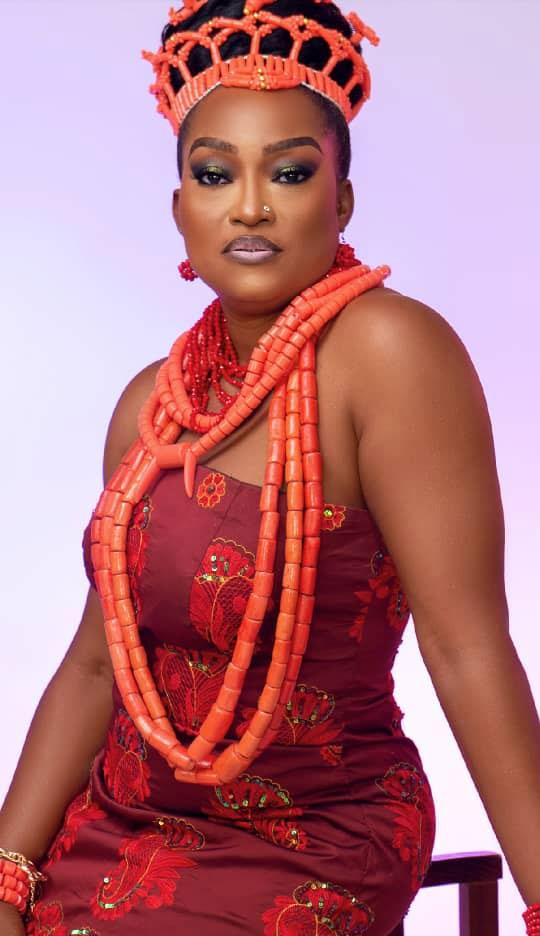
it can be managed without a mastectomy, but if it progresses too far, removing the breast may be the only option. This gave me hope—I wasn’t ready to consider a mastectomy, so I clung to the belief that if I traveled abroad, I wouldn’t need to undergo the surgery. I collected the contact information of the resource persons at the lecture.
Ironically, two weeks later, in January 2016, I had another visa appointment at the US Embassy, but once again, my application was rejected. That was when I realized traveling was no longer an option. I decided to seek out the doctor from Lagos University Teaching Hospital, LUTH. I was prepared to walk away if he mentioned a mastectomy and surrender myself to fate.
But, by divine orchestration, I stayed. The lecture featured an oncologist from America, another from East Africa, the head of the Department of Oncology at Lagos University Teaching Hospital (LUTH), and Mrs. Betty Akeredolu, a breast cancer survivor and founder of the Breast Cancer Association of Nigeria (BRECAN). During the lecture, I asked if a mastectomy was necessary in all cases of breast cancer. The oncologist from America explained that if the cancer is caught early,
When I saw him, he examined me and, noticing the lump, immediately recommended further tests to determine if the cancer had spread to my organs, given how long I had delayed treatment. To my surprise, the tests revealed that my organs were not affected and the lump had stayed in place without spreading. I began treatment immediately. So, from the time I first discovered the lump in May 2014 to January 2016, almost two years had passed before I finally started treatment, which I completed in August 2016.


Why do you think the lump returned after it was removed and how can one prevent it from happening?
After the first lump was discovered, I experienced two recurrences. Unfortunately, there is no way to prevent a recurrence. Cancer continues to grow, but it can be stopped with chemotherapy, an aggressive drug therapy designed to destroy rapidly growing cells. If the lump is small, chemotherapy can dissolve it; if it's larger, chemotherapy may shrink it.
So why did you not do chemotherapy? I did.
How did you then have a recurrence despite getting chemotherapy?
In fact, I underwent both chemotherapy and radiotherapy. In my case, the lump was dissolved and I assumed it was completely gone. I was supposed to have another surgery immediately after chemotherapy, but I didn’t. That could have allowed the cancer cells to grow back. If I had done the surgery, there likely wouldn’t have been a recurrence. However, I also believe the first surgeon might not have properly removed the initial lump. I later switched to a different surgeon who performed a procedure called wide local excision. This involved removing both the regrown lump and a large area of tissue around it. The surgeon dug deep into the spot to ensure that all remnants that should have been cleared in the first surgery were completely removed. Afterward, my breast was reconstructed. This was a significant risk—most doctors wouldn’t have taken that approach. Even abroad, they often suggest removing the entire breast in such cases.
How long have you been cancer free?
This year makes it 10 years since I got diagnosed with breast cancer, but I have been cancer free for eight years since the treatment.
How were you able to go through the trying period and who was your support system?

I would say that God was with me and my family during that time because I couldn't fully grasp what was happening to me. Looking back, I didn't realise I was sitting on a time bomb. Many people received their diagnosis after mine, but today, they are no longer with us. Those who could afford to travel abroad for treatment often returned and remained silent about their experience. Sadly, some weren’t fortunate enough to return and we only heard of their passing. Others, who couldn’t travel, would quietly put their affairs in order and wait for the inevitable.
How did Atinuke Cancer Foundation come to be?
During my treatment at LUTH, I witnessed many of the problems plaguing the Nigerian medical sector. There was a severe lack of equipment to treat cancer in Nigeria. During former President Olusegun Obasanjo's administration, eight chemotherapy machines were brought into the country and distributed to eight teaching hospitals. However, after he left office, seven of these machines broke down, leaving only the one at LUTH operational—the very one I used for my treatment in 2016. This single machine was used by hundreds of thousands of cancer patients and it would frequently break down. If it failed during your treatment, which should only take a few days, you could end up waiting two months for repairs. They would salvage parts from the broken machines in other teaching hospitals to fix the one in Lagos. Seeing all this was eye-opening.
As I underwent my treatment, my journalistic instincts kicked in, and I began to document everything I observed about the state of the health sector. By the time I completed my treatment, I felt compelled to share my experiences. I published my first blog post and it garnered over 5,000 views—people were shocked by the conditions in the health sector. I also decided to give back to LUTH. Today, the cancer centre there looks more like a proper facility. Back then, it was a place of neglect, barely recognisable as a hospital. The hallways were so dark you needed a torchlight to walk through them. Cancer patients were supposed to have special reclining chairs for chemotherapy, as each session could last about three hours. Instead, we had to sit on old plastic party chairs with metal bars. The place felt abandoned, almost like a ghost house. During the festive season, I took it upon myself to clean and decorate the space. I cooked meals and organised a small lecture to educate patients about cancer and advocate on their behalf, urging the government to address the state of the cancer centre at LUTH and other government hospitals. The doctors couldn’t speak out for fear of losing their jobs, which was understandable.
My initiative was an eye-opener for many, and it marked the beginning of the Atinuke Cancer Foundation—not something I had planned, but a response to the urgent need for change. I began advocating for breast cancer awareness through street campaigns, which gave people the courage to share their own cancer stories. At that time, cancer was heavily stigmatised, and people didn’t want to talk about it. If you mentioned you had cancer, people would avoid you like the plague. It carried a lot of negativities.
“I firmly believe that God gave me a purpose to fulfill. I feel He wanted to use me to deliver a message. My advice to others is to get educated about cancer and not just rely on assumptions or hearsay. Cancer doesn’t have to be a death sentence if you do regular health checks and take proactive steps toward treatment. Initially, I thought cancer was a stroke of bad luck, but looking back, it has brought more blessings than I ever expected. It has opened doors and given me opportunities I could never have imagined. It has projected my life and my purpose in ways I never thought possible
Today, people are more open and willing to discuss it. Thanks to the awareness we raised, three new chemotherapy machines were installed in Lagos, two in Abuja and the ones in other centres were repaired during President Muhammadu Buhari's administration. Through my foundation, I’ve been able to impact many lives and I’m proud to have contributed to the gradual improvement in Nigeria's health sector. It’s been a long journey, but I’m grateful to be part of this important work.
What lessons did you learn after discovering you had breast cancer?
I firmly believe that God gave me a purpose to fulfill. I feel He wanted to use me to deliver a message, especially because when I was diagnosed, there wasn't a place to turn for firsthand information or support. There were no centres where people could gather, share experiences and learn how to face the challenges ahead. While there were cancer foundations, they weren’t as visible or active as some of the ones we have today. My advice to others is to get educated about cancer and not just rely on assumptions or hearsay. Cancer doesn’t have to be a death sentence if you do regular health checks and take proactive steps toward treatment. Initially, I thought cancer was a stroke of bad luck, but looking back, it has brought more blessings than I ever expected. It has opened doors and given me opportunities I could never have imagined. It has projected my life and my purpose in ways I never thought possible.
You have a background in media and even had your own production studio. Is the studio still functional, what are you up to these days?
When cancer came into my life, I had to set my work aside. Cancer advocacy now consumes a significant amount of my time. It is so vast that it has become a full-time job in itself—requiring constant reading, learning, unlearning and relearning. There are always projects to plan and programmes to execute, all centered around raising awareness of cancer, learning new treatment methods, policy making, etc. Also, I am currently writing a book about my ordeal. It will be launched before the end of the year so that as many people as wish to read about my full cancer story will have an opportunity to do so.
What will you say defines you more now after surviving cancer?
I have learned to take life easy and not to make things more difficult than they need to be. I've come to understand that if you have faith and believe in God, things will fall into place for you. Additionally, I've realized that going abroad or having money doesn’t guarantee survival from cancer. I made several attempts to travel for treatment, but it didn’t work out. Now, I can travel whenever I want as long as I have the funds.
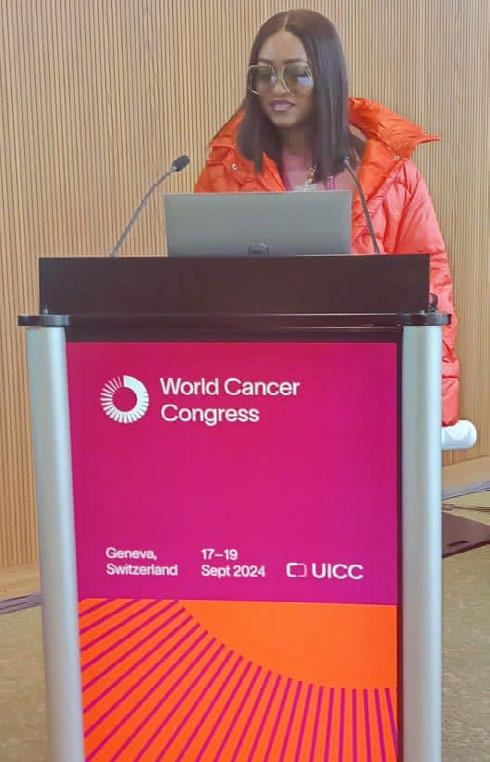


STORIES BY IVORY UKONU

Prince Olurotimi Martins, Chairman of Lagos Island Club, has been accused of being tightfisted and treating his domestic staff like slaves. For this, one of his staff tried to teach him a lesson he won't forget in a hurry. The staff, Salaudeen Abubakri decided to bolt away with his boss' Range Rover SUV. Abubakri claimed that he went away with the vehicle because he was being treated like a slave and planned to sell his boss' vehicle for N30 million. He revealed that all seemed rosy when he was newly employed, claiming that his employer promised to invest in his future.
He claimed that despite telling his employer that he earned N70,000 from the two jobs he worked, his employer decided to peg his salary at N50,000. The first month he got paid the N50,000. In the second month, he got paid N40,000 and there after he began to be treated like a slave. By the fourth month, he resigned his appointment but came back three days later with the plan to steal the car.
Having been acquainted with his boss’ daily itinerary, Abubakri eventually stole the vehicle, knowing that the SUV was unregistered. A team of police investigators from the Zonal Anti-Piracy Unit swung into action through technology-driven policing and he was fished out and arrested.
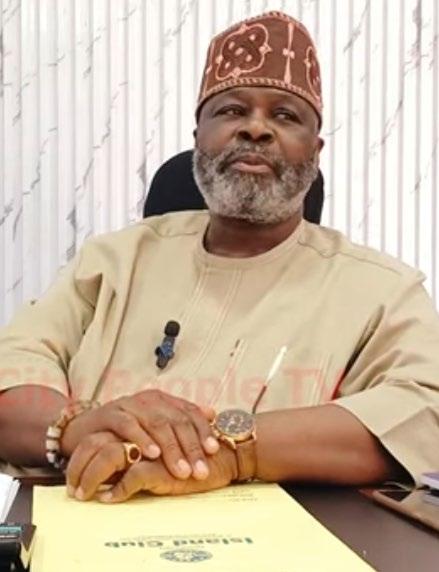
Abubakri confessed to have masterminded the whole act with his syndicate and also admitted being the person that called the estate security guards on the day of the incident with a new SIM card he had specifically gotten for the operation to impersonate his boss to allow easy passage of the vehicle. Thereafter, the SIM card was destroyed before moving the SUV to Abuja where it was recovered.
67-year-old Martins emerged chairman of the prestigious Lagos Island club six months ago after polling 272 votes to defeat his closest rival who polled

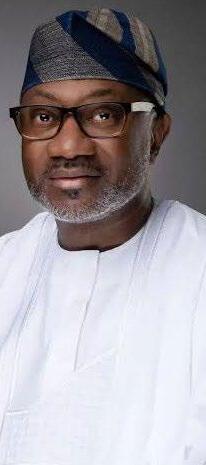
Continued from page 18 Continued from page 18
198 votes. During his election to become chairman, some very highly placed personalities who are members of the club were on ground to cast their votes. They included former President Olusegun Obasanjo; the Alake of Egbaland, Oba Adedotun Gbadebo; former Works Minister, Babatunde Raji Fashola; Retired Justice George Adesola Oguntade; Bisi Olatilo; Senator Felix Bajomo; former Lagos State governor, Akinwunmi Ambode, former chairman, Body of Benchers of the Nigerian Bar Association, Wole Olanipekun; Abayomi Finnish; Chief Alex Duduyemi, former deputy chairman, All Progressive Congress, APC, Iyiola Omisore, society matriarch, Tai Elemosho-Okesanjo and many others too numerous to mention.
The ASG aims to revolutionise governance across the continent by offering world-class public policy education and research programmes tailored to African realities. Moghalu, is expected to lead the institution as it seeks to address pressing governance challenges in Africa. The accomplished academic and former United Nations official was handpicked from an array of experts in governance on the African continent because of his sterling track record of leadership in international and national policymaking institutions and academia. His leadership influence will help make ASG a transformative graduate school and develop a new generation of purpose-driven leaders with the skills and mindsets to help Africa address the challenges of the 21st Century.
Moghalu’s leadership will be instrumental in realising the ASG’s mission to offer cutting-edge academic programmes, innovative research, and policy engagement. With a focus on empowering African leaders through education and innovation, Moghalu is expected to play a central role in establishing ASG as a hub for intellectual growth and policy solutions on the continent.
The establishment of ASG is a powerful expression of a clear
vision on the part of the founding leaders such as President Paul Kagame of Rwanda and former Ethiopian Prime Minister Hailemariam Desalegn. Driven by competent leadership and governance, the initiative is designed to foster a new generation of leaders equipped with the skills and mindsets necessary to drive sustainable development and governance reform across the continent. The institution’s founding is a collaboration between prominent African visionaries and global partners and supported by the Mastercard Foundation as part of its Young Africa Works strategy, which aims to enable 30 million young Africans, 70 per cent of whom are women, to access dignified and fulfilling work opportunities by 2030. It aims to combine international best practices with Africa’s unique political, social, and economic contexts. The school will be overseen by an independent governing board comprising of notable figures such as Donald Kaberuka, former president of the African Development Bank; Hajer Gueldich, a professor at the University of Carthage; Kishore Mahbubani, former dean of the Lee Kuan Yew School of Public Policy at the National University of Singapore, and Francis Gatare, CEO of the Rwanda Development Board.
After donating N2 billion for the first phase of the engineering faculty building at Augustine University in Ilara Epe, Lagos, last year, billionaire businessman, Femi Otedola has again donated another sum of N3.7 billion towards the construction of the phase 2 of the faculty building. Otedola who made the donation during the 6th convocation ceremony of the institution during the week, said the project is set to be completed within 12 months.
The university named the engineering building after Otedola's nonagenarian mother, Lady Doja Otedola in appreciation of her passion towards the betterment of the university and its students.
Otedola who is the chancellor of the Catholic-owned university said that the phase 2 project is expected to further enhance the university’s capacity to train future engineers and also in fulfilment of his dream to add a lasting value to the institution and its students.
Otedola expressed his appreciation to the proprietor of the university for appointing him as the chancellor of the institution, promising to support the vision of the revered Cardinal Anthony Okogie, whom he said accompanied his late father, Sir Michael Otedola to meet the late Oba of Ilara in order to obtain the present site for Augustine University to commence.
THEOPHILUS DANJUMA BUILDS AIRPORT, FIVE-STAR HOTEL
originally an abandoned airstrip built by missionaries which the former defence minister upgraded. The airport was built in the region where Kashimbila Dam is located.
In addition to the airport, the dam also boasts a five-star hotel which Danjuma built.
The whole idea of building the airport and the hotel is to transform the region to a tourism hub. Recall that the federal government formally handed over the Kashimbila Dam, a federal project to a consortium which is led by Danjuma's company, KP Hydro Limited in a concession agreement aimed at augmenting Nigeria’s renewable energy capacity.
The consortium is expected to manage the dam which is a 40-megawatt hydroelectricity plant and enhance electricity supply and ultimately stimulate economic growth. The Kashimbila Dam which was initiated by the Goodluck Jonathan administration was built to prevent flooding caused by water released from Cameroon. But it has since evolved into a vital source of clean energy for Taraba State. When the project was initiated, there was no plan to build an airport or a five-star hotel. The new additions are the ideas of the retired lieutenant general and former chief of army staff. Both facilities are open to the public.
EWI OF ADO EKITI DECLARES OCTOBER 10, AFE BABALOLA DAY
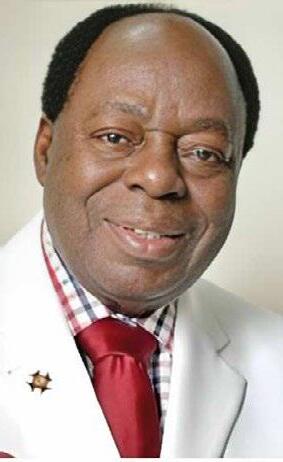
Ahead of his 94th birthday next week, legal luminary, Aare Afe Babalola has come to the aid of financially strapped young people in Nigeria who desire to learn, study privately and earn degrees without attending any higher institution through his Afe Babalola Centre for Transnational Education.
Recall that the educationist was recently conferred with a Honorary Fellowship by King’s College, London, a respected college of the University of London. The fellowship was conferred on him in recognition of his transformative contributions to education and the society at large, following a huge philanthropic gesture of £10 million (N5.6billion at that time) to the institution for the establishment of a Centre
for Transnational Education to enable young Africans have access to quality education and opportunities. Babalola, who is also the founder of Afe Babalola University, ABUA, Ado-Ekiti, Ekiti State also announced the commencement of free antenatal and a normal delivery programme for pregnant women which he christened 'Afe Abiye' in Ado-Ekiti. Similarly, the nonagenarian bothered by how people can overcome hunger, also floated two cooperative societies for Ado indigenes starting off with N200 million. One for men and one for women. Each of these two cooperative societies were given N100 million to enable registered members to apply for loans to start his or her business.
These initiatives were unveiled penultimate week during the Afe Babalola Day.
The Ewi of Ado, Oba Rufus Adeyemo Adejugbe had declared October 18 as Afe Babalola Day to be celebrated every year by the Ado Ekiti community in recognition of Babalola’s humanitarian services and contributions to the development of the society.
Photo Editor: Peace Udugba [08033050729]
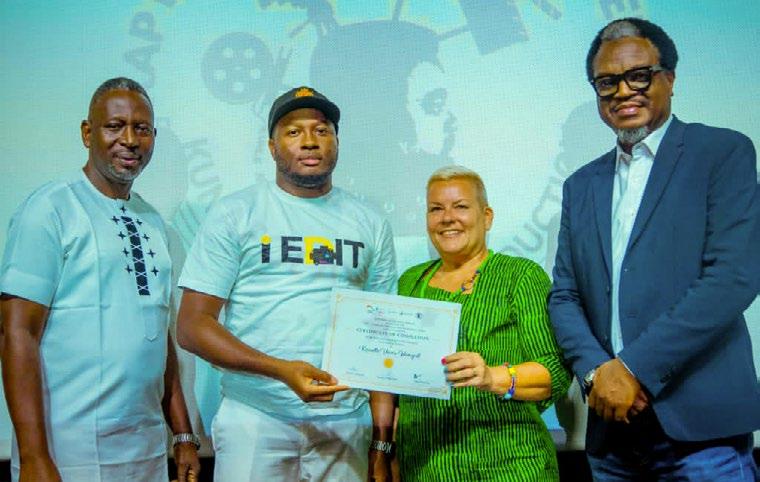

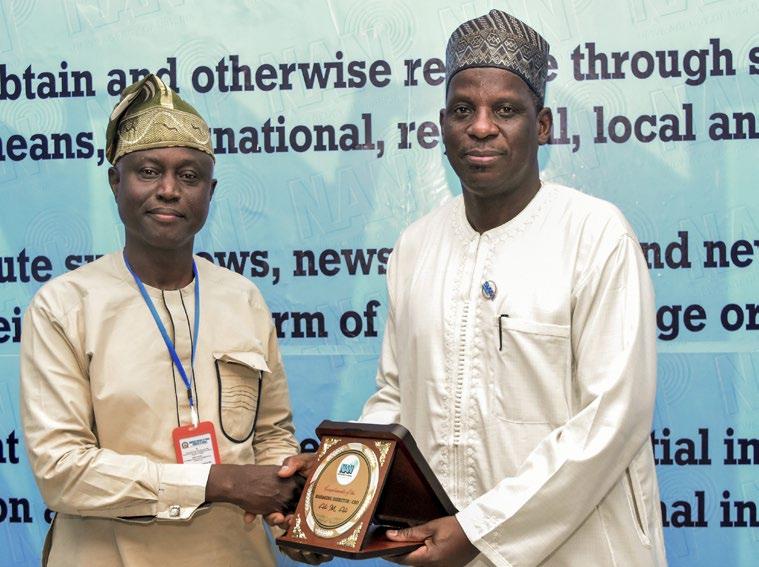
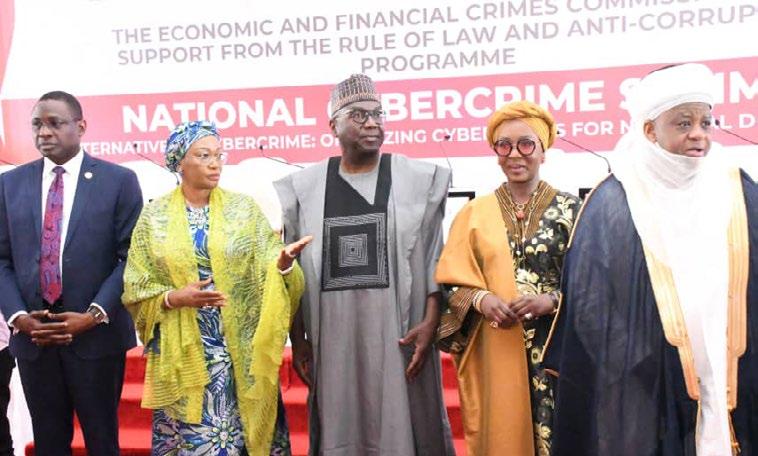
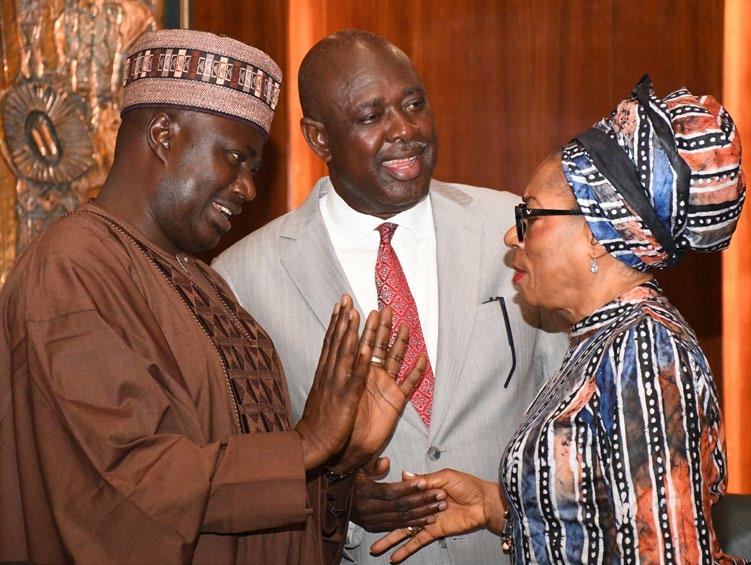

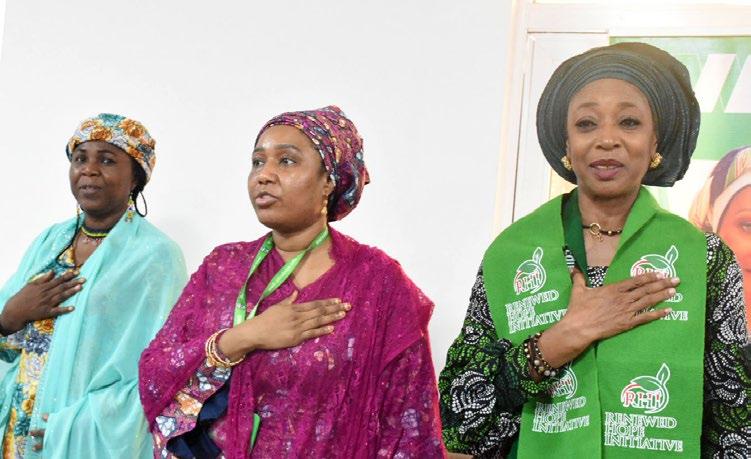



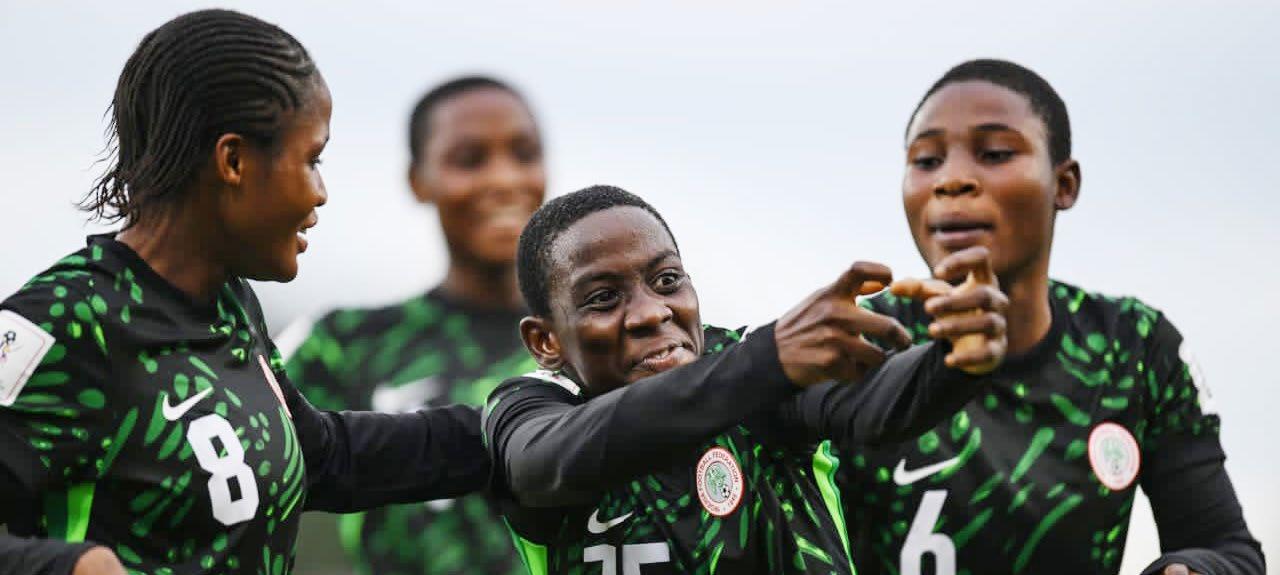
BY JUDE OBAFEMI
The Nigeria's U-17 Women's national team, the Flamingos, have been a standout at the 2024 FIFA U-17 Women's World Cup, displaying exceptional skill and determination while setting a new attendance record for a Dominican Republic national team match. With wins against New

Olowookere's focus on taking each match step by step has produced good results
Zealand (4-1), Ecuador (4-0) and Dominican Republic (1-0), they have booked their place in the quarter-finals where they will face the United States on Saturday, affirming their status among the tournament's leading teams.
The Nigerian team's brilliant performance began during the African qualifiers, where they demonstrated their quality by scoring 25 goals across six matches. Striker Harmony Chidi led the scoring charts in qualification with 13 goals, signalling the team's attacking intent way before the global tournament even commenced.
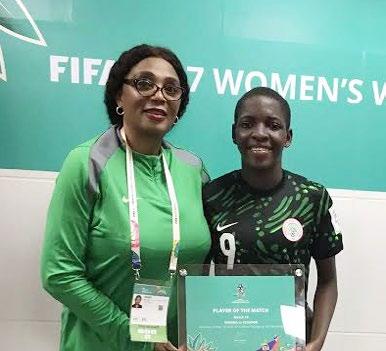
Their qualification campaign included commanding performances against several African teams. They defeated the Central African Republic with a 12-0 aggregate score, winning both legs 6-0. Against Burkina Faso, they moved forward with a 7-1 aggregate victory after drawing 1-1 in the first leg and winning 6-0 in the second. In their final qualification match, they overcame Liberia with a 6-1 aggregate score, winning 4-1 away and 2-0 at home.
Coach Bankole Olowookere mentioned before leaving Nigeria: "I have confidence in the girls to deliver the goods at this competition. We have come well-prepared to do even better than we did in India. The Nigeria Football Federation has done everything to prepare the team well, with a two-week final camping here in the Dominican Republic."

Olowookere picked 21 players for the World Cup squad, comprising three goalkeepers, seven defenders, four midfielders, and seven forwards. The squad included talented players from various Nigerian clubs, with representatives from teams like Edo Queens, Sunshine Queens, Remo Stars Ladies, and Delta Queens.
The Flamingos started their World Cup campaign with an impressive 4-1 victory over New Zealand at the Estadio Cibao in Santiago. Shakirat Moshood opened the scoring in the second minute, followed by goals from Taiwo Adegoke in the 13th minute and Opeyemi Abdulwahab in the 28th minute. Taiwo Afolabi added a fourth goal in the 55th minute before Hannah Saxon scored for New
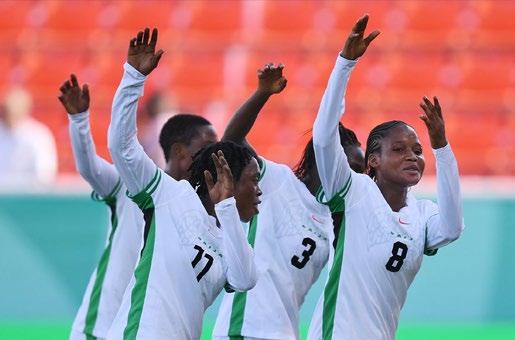
Nigerian team controlled the match with 30 shots, 15 of which were on target.
Their second group match against Ecuador proved equally strong, resulting in a 4-0 victory. Shakirat Moshood scored in the 28th minute, while Harmony Chidi doubled the lead in the 54th minute. Peace Effiong added a third goal in the 66th minute before Moshood completed her brace in additional time. This victory confirmed their place in the quarter-finals with a game remaining.
The team's attacking strength was evident throughout the Ecuador match. Despite several early missed chances, including forward Peace Effiong being twice denied by Ecuadorian goalkeeper Maria Rodriguez, Nigeria maintained control. Harmony Chidi, who struck the crossbar just before halftime, remained determined and found her goal in the second half through a well-placed pass from Aishat Animashaun.
In their final group match against hosts Dominican Republic, the Flamingos made history. The game drew 13,535 spectators, establishing a new attendance record for any Dominican Republic national team match. The match itself was decided by a spectacular 89th-minute strike from 24 yards by Shakirat Moshood, her fourth goal of the tournament.
Coach Olowookere made team changes for this match, bringing in Rokibat Azeez, Blessing Ifitezue, and Ramotalahi Kareem to replace Onyedikachi Ekezie, Peace Effiong, and Harmony Chidi. Despite having a goal disallowed by VAR in the 15th minute, the team kept their focus to find the winning goal.
The Flamingos ended top of Group A with maximum points from three matches, scoring nine goals while conceding only one. Their strong group stage performance has created a quarter-final meeting with the United States on Saturday.
*Continues online at www. thewillnews.com
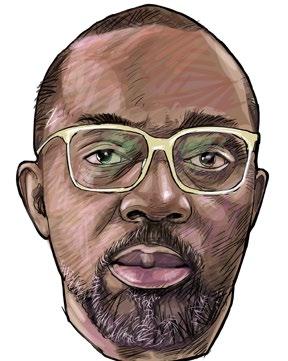

ogannah@thewillnews.com
The twisted metal wreckage of a fuel tanker lies by the roadside in a farming town in northern Nigeria's Jigawa State. Around it, a community grieves the loss of over 170 souls—mothers who will not return home to their children, fathers who will not see another harvest, young people whose dreams were extinguished in an instant. The tragedy of October 16 reveals a truth about human desperation that should shake every conscience and call us all to action.
When the petrol tanker overturned that Tuesday night, those who rushed toward the spilling fuel were not strangers—they were neighbours, each with responsibilities and families waiting at home. Despite the driver's frantic warnings, they came with containers, driven by a need deeper than fear. Around midnight, the flames that erupted did not just claim lives; they orphaned children, widowed spouses, and left an entire community grappling with an irreplaceable loss.
One father's voice breaks as he speaks of his four sons—all lost that night. One had rushed to the scene not to collect fuel, but to urge others to safety. Now, their family's story of loss echoes through nearly every household in the community, where empty chairs at dinner tables tell tales of absence that words cannot capture.
In the quiet moments after tragedy, we must ask ourselves: what drives people to risk everything for a few litres of fuel? The answer lies not in judgement but in understanding the depth of human struggle. When petrol prices surge from N175 to over N1,000 per litre, it is not just numbers changing on a sign—it is families at a loss at what to do with limited resources that can no longer bring food to the table. With inflation exceeding 30 per cent, each day becomes a brutal calculation of survival.
This pattern of desperate survival extends beyond one town. Last month, a similar explosion in Niger state claimed 48 lives. Data show that in recent years more than 1,500 petrol truck accidents have resulted in countless deaths and hospitalisations— each victim someone's beloved, each loss a thread torn from the fabric of a community. At accident scenes across the country, crowds gather not just to loot but to salvage what might feed their families for another day.
The youth of Nigeria, once proud inheritors of West Africa's promise, now risk death in wheel wells of aircraft or ship containers. Each desperate attempt at migration is a testament not to recklessness but to the profound human need for dignity and opportunity. We must ask ourselves: what have we done or failed to do, when the children of such a resourceful nation see death-defying escapes as their best hope? Sociologists speak of how poverty pushes people
toward hazardous activities. However, behind the academic analysis lies a simple truth: every parent wants to feed their child, every young person dreams of a future worth living for. When basic commodities become luxury items, desperation breeds dangerous choices. Preachments about abiding by
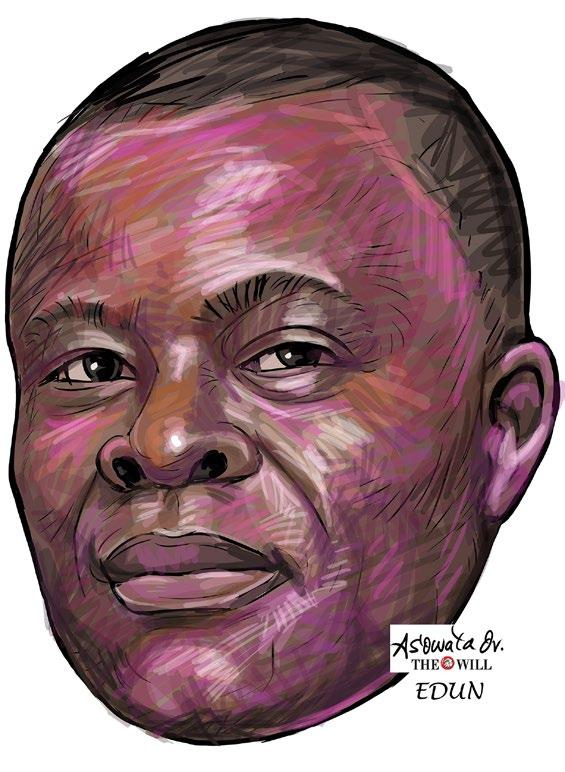
the law of the land fall on deaf ears when hunger has taken a good number of the citizens hostage. It honestly is a pitiable situation that many Nigerians find themselves in.
In this farming town in Jigawa, nearly every household now bears the weight of death or injury. One family's story of loss—an uncle dead, brothers severely burned—represents countless others whose stories deserve more than our tears. They deserve our commitment to change. Each explosion, each desperate scramble represents not just a tragedy but a call to our collective conscience.
"We will never forget this day," a resident says of the tragedy. Yet remembrance must spark transformation. The next fuel tanker that overturns should find a community where desperation has been replaced by dignity, where people have better options than risking death in search of life.
It is now time for the political leadership across the country to quickly wake up to their responsibilities and begin to provide effective and purposeful governance. Where they fail to perform, we must demand it from them without fear or intimidation. Investment in education and skills development must be prioritised. Small business support programmes and microfinance initiatives could help create legitimate paths to survival. Agricultural modernisation in rural areas could revitalise local economies and create sustainable livelihoods. Community leaders should work closely with their government to create cooperative savings groups and skill-sharing networks. Businesses can invest in local training and employment. Civil society organisations can establish emergency support systems.
Every individual must recognise the role they can play to contribute to community welfare funds or mentor young people seeking legitimate opportunities that will restore personal dignity and elevate the average Nigerian to the point where desperation ceases to be a motivational factor.
The souls lost that night light a path forward—not of blame but of shared responsibility. Their stories compel us to ask: What can we do today to help ensure no more families face such impossible choices? How can we contribute to building a society where dignity and opportunity are not distant dreams but daily realities?
These recurring tragedies must become a catalyst for change. Each life lost represents a failure of our collective responsibility to create a society where survival does not require such desperate measures. The flames that consumed those 170 souls illuminate a path we can no longer ignore—one that leads toward a future where poverty no longer drives people to death's door.
I want to again emphasize that the choice before us is clear: we must transform our grief into action, our words into deeds. For every empty chair at a dinner table, for every child who will grow up without a parent, for every dream extinguished that night, we must commit to building a better tomorrow before another community counts its dead, before another family is torn apart by the desperate search for survival.
The youth of Nigeria, once proud inheritors of West Africa's promise, now risk death in wheel wells of aircraft or ship containers. Each desperate attempt at migration is a testament not to recklessness but to the profound human need for dignity and opportunity